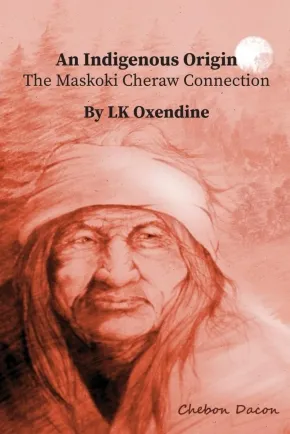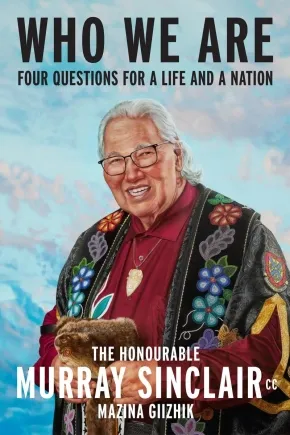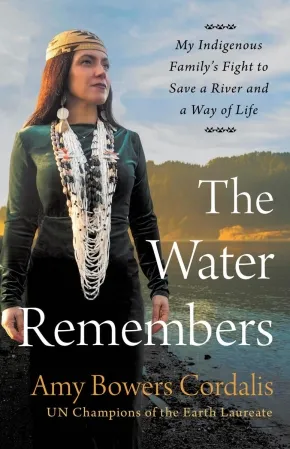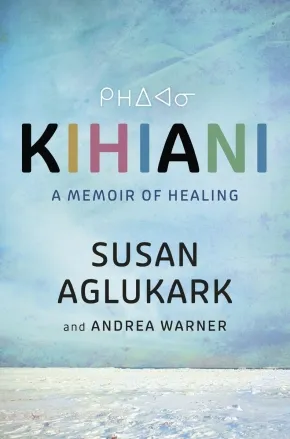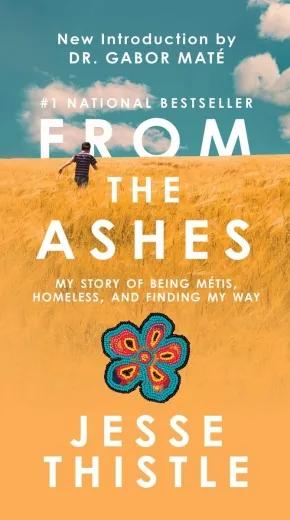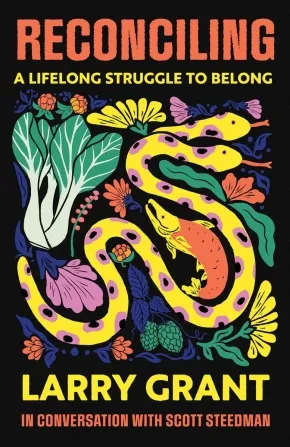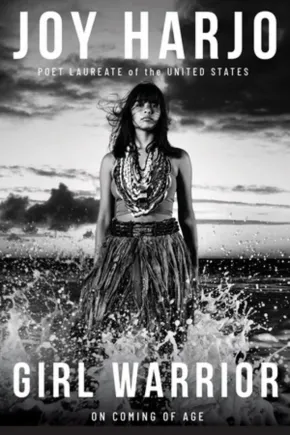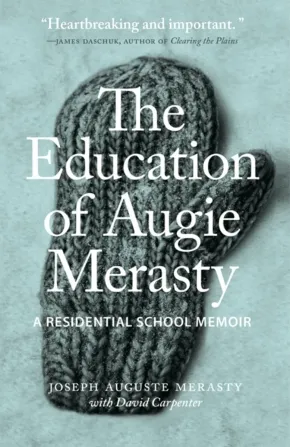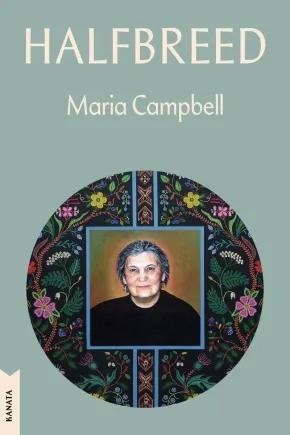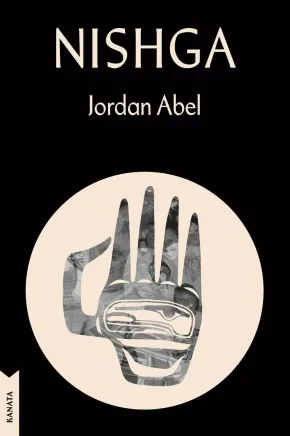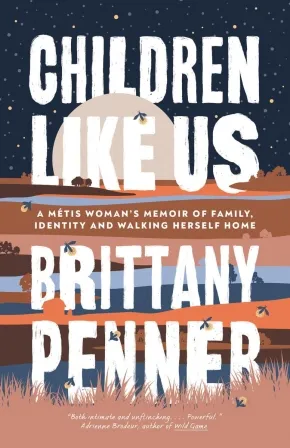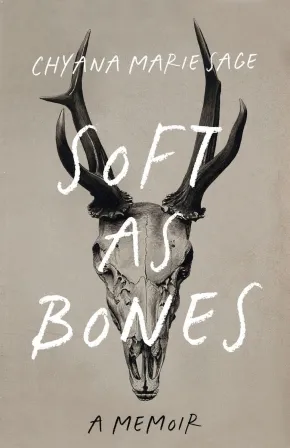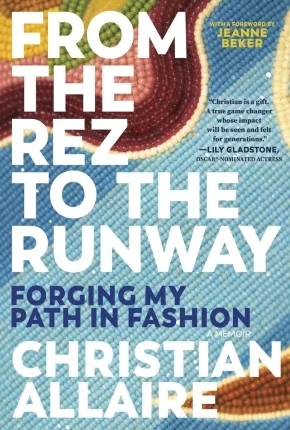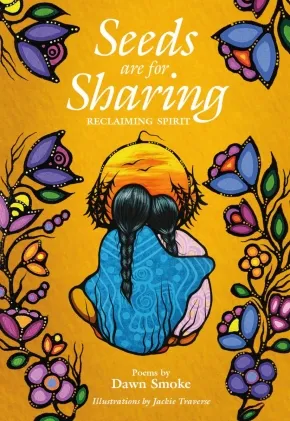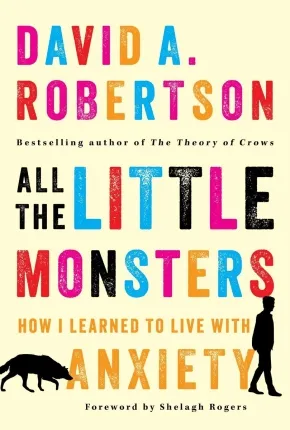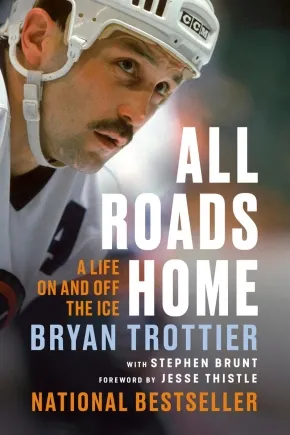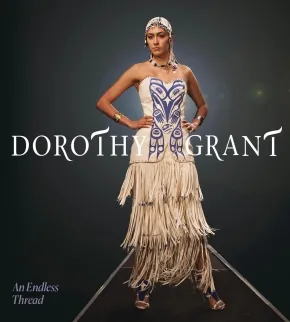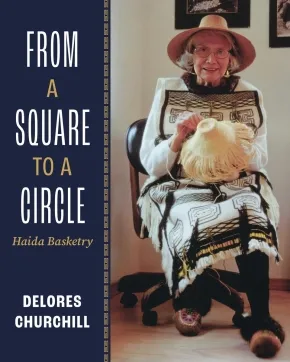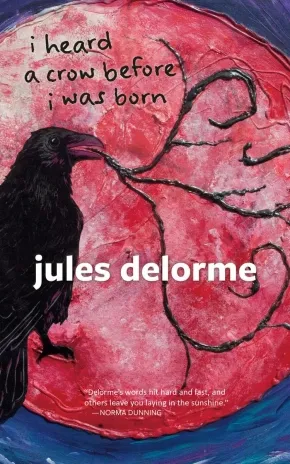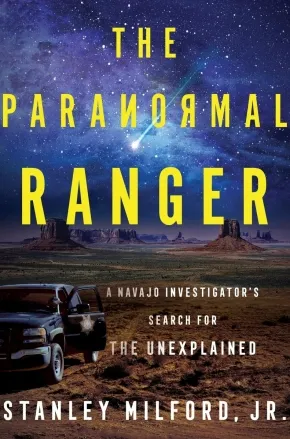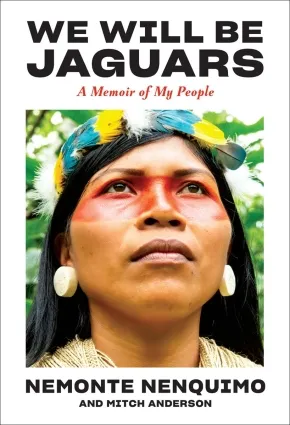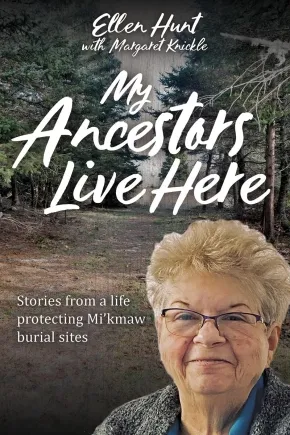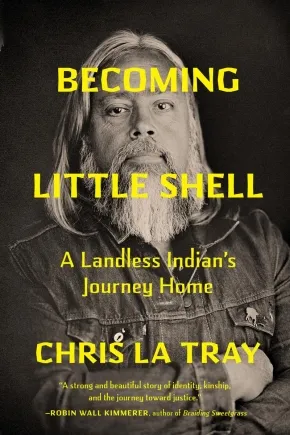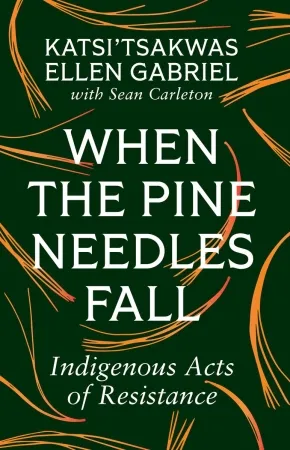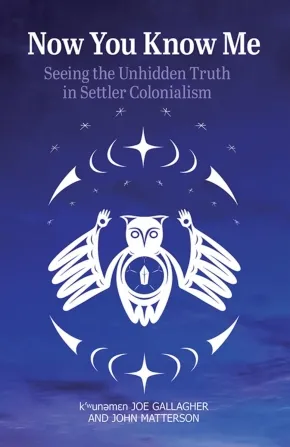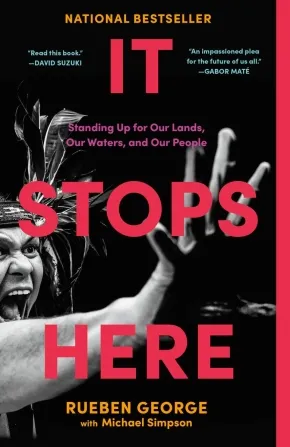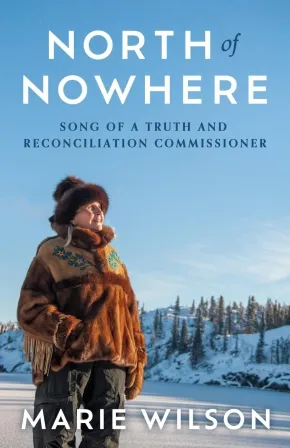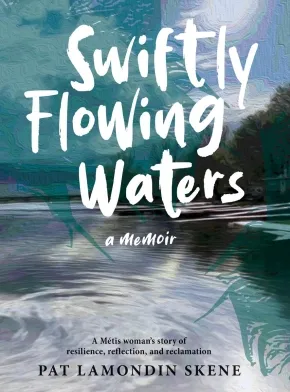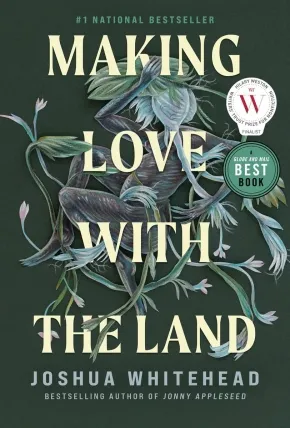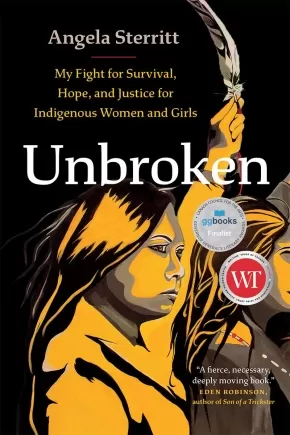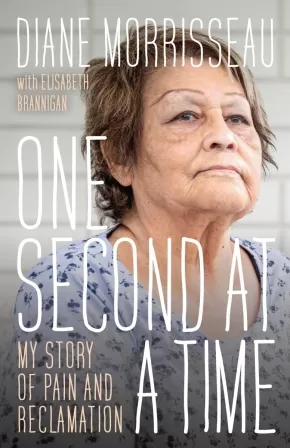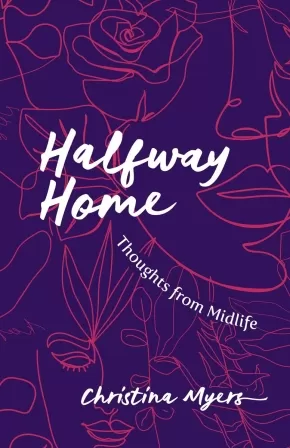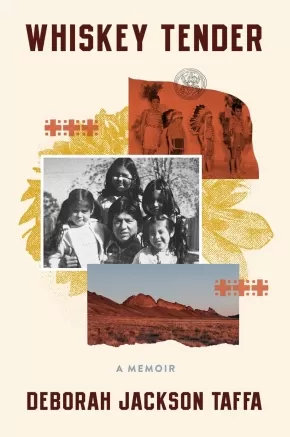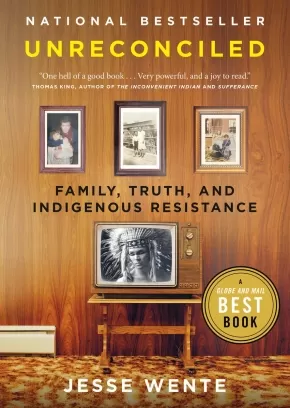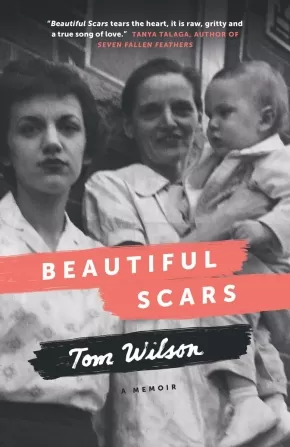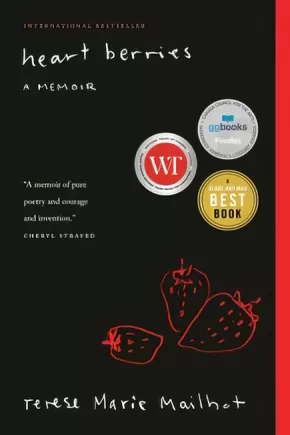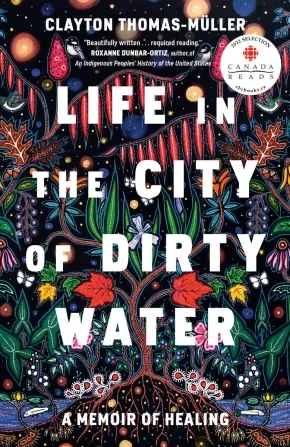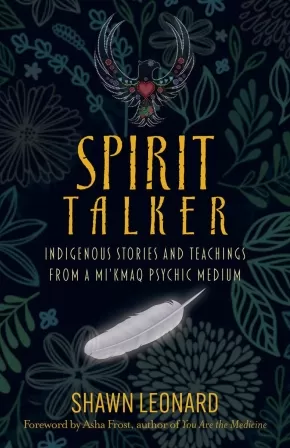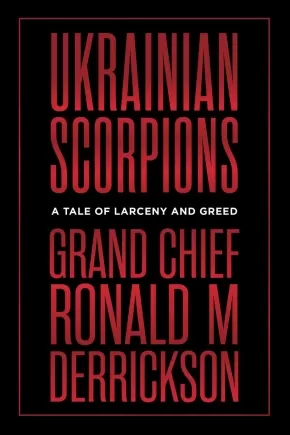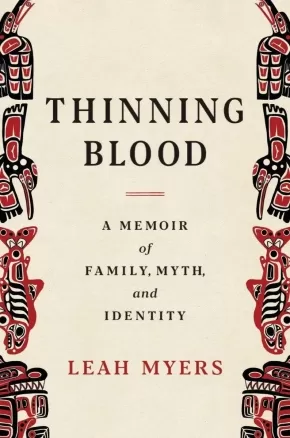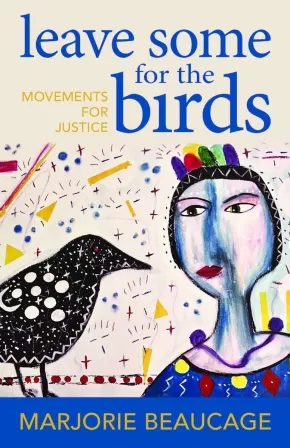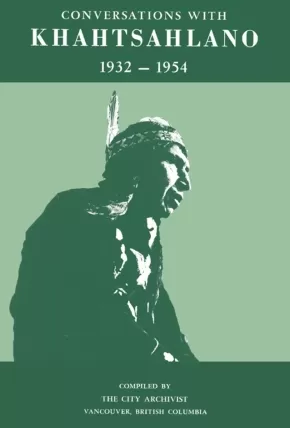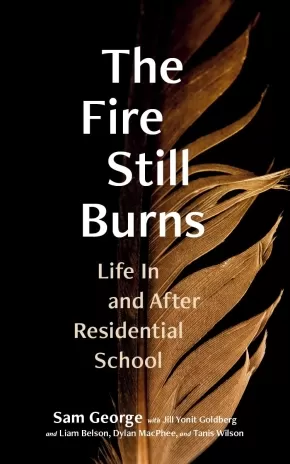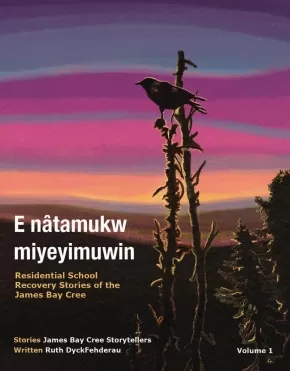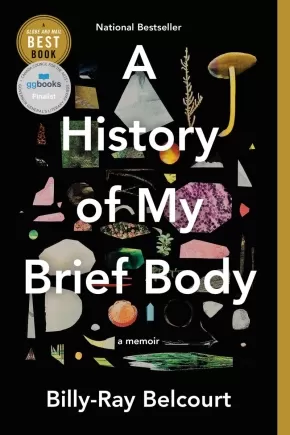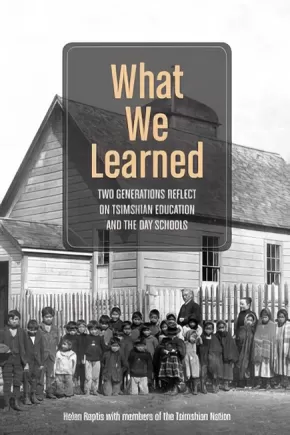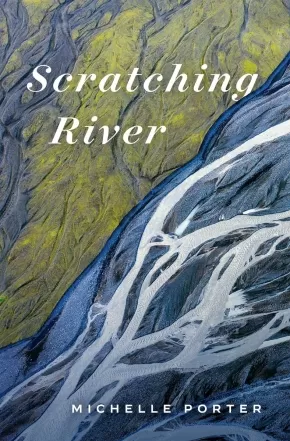
Memoir
1
-
15
of
119 Results;
Sort By
Go To
of 8
An Indigenous Origin: The Maskoki Cheraw Connection
$34.78
Format:
Paperback
Text Content Territories:
Indigenous American; Native American; Cheraw;
ISBN / Barcode: 9798894065298
Synopsis:
Synopsis:
An Indigenous Origin – The Maskoki Cheraw Connection unveils a deeply researched and long-overlooked history of the Lumbee Tribe’s ancestral connection to the Cheraw people. Drawing on fourteen years of meticulous research, LK Oxendine uncovers historical records, maps, treaties, and cultural narratives that restore a suppressed identity erased by centuries of denial, displacement, and political marginalization.
From the ancient Maskoki territories to the arrival of Spanish, French, and British forces, this compelling account traces the Lumbee Cheraw’s journey through survival, cultural preservation, and the ongoing struggle for recognition. Oxendine’s work honors the voices of ancestors, the strength of matrilineal societies, and the unbreakable ties between people and land.
Part memoir, part ethnographic history, this book invites readers to witness the truth long hidden in archives and oral traditions, truth that affirms an honorable Indigenous heritage and demands acknowledgment in the twenty-first century.
If you are drawn to Indigenous history, identity reclamation, and the untold stories of the American Southeast, An Indigenous Origin – The Maskoki Cheraw Connection is an essential read.
Additional Information
416 pages | 6.00" x 9.00" | Paperback
Who We Are: Four Questions For a Life and a Nation (PB)
$26.00
Format:
Paperback
Text Content Territories:
Indigenous Canadian; First Nations; Anishinaabeg; Ojibway;
Reading Level: N/A
ISBN / Barcode: 9780771099137
Synopsis:
Synopsis:
Judge, senator, and activist. Father, grandfather, and friend. This is Murray Sinclair’s story—and the story of a nation—in his own words, an oral history that forgoes the trappings of the traditional written memoir to center Indigenous ways of knowledge and storytelling. As Canada moves forward into the future of reconciliation, one of its greatest leaders guides us to ask the most important and difficult question we can ask of ourselves: Who are we?
For decades, Senator Sinclair has fearlessly educated Canadians about the painful truths of our history. He was the first Indigenous judge in Manitoba, and only the second Indigenous judge in Canadian history. He was the Chair of the Truth and Reconciliation Commission, and remains one of the foremost voices on Reconciliation. And now, for the first time, he will share his full story—and his full vision for our nation—with readers across Canada.
Drawing on Senator Sinclair’s unique experiences, and his perspectives regarding Indigenous identity, human rights, and justice in Canada, Who We Are will examine the roles of history, resistance, and resilience in the pursuit of finding that path forward, and healing the damaged relationship between Indigenous Peoples and non-Indigenous peoples in Canada. And in doing so, it will reveal Senator Sinclair’s life in a new and direct way, exploring how all of these experiences shaped him as an Anishinaabe man, father, and grandfather.
Structured around the four questions that have long shaped Senator Sinclair’s thinking and worldview—Where do I come from? Where am I going? Why am I here? Who am I?—Who We Are will take readers into the story of his remarkable life as never before, while challenging them to embrace an inclusive vision for our shared future.
The book includes the What We Have Learned report, created by the Truth and Reconciliation Commission of Canada (TRC).
Reviews
“Who We Are is a very special, very important book. With deep humility, surprising humour, and abiding humanity—all the 'humes,' if you will—Murray Sinclair made me feel as though I was sitting beside him at a campfire, listening to stories and teachings from his most remarkable life. I could hear his voice. I could feel the fire. I could imagine a better world. But Murray Sinclair asks us to do more than imagine it. By sharing with unflinching honesty what shaped him as a visionary leader, he calls us to change the world, to make it better for each new generation, and to honour the sacredness of Creation. I will return to Who We Are again and again, for his stories, his soulful poems, and his guidance. This book, so much about understanding where we have come from, is a gift to where we are going.”—Shelagh Rogers, O.C., Chancellor of Queen’s University and Honorary Witness in the Truth and Reconciliation Commission
“It would be impossible to quantify Murray Sinclair’s impact on this place that we call Canada. He’s said that since education got us into this mess, education must get us out of it. If that’s true, and I believe it is, he is one of our most important teachers. The pursuit of reconciliation takes place on a long and winding road. It will take generations to reach our destination, but this book and Sinclair’s voice will stand the test of time, guiding us in his wisdom and the example he has set in how he has lived his life.”—David A. Robertson, bestselling author of the Misewa Saga Series
Additional Information
480 pages | 5.18" x 8.00" | Paperback
The Water Remembers: My Indigenous Family's Fight to Save a River and a Way of Life
$40.00
Format:
Hardcover
Text Content Territories:
Indigenous American; Native American; Yurok;
Reading Level: N/A
ISBN / Barcode: 9780316568951
Synopsis:
Synopsis:
A moving multigenerational memoir of Indigenous resistance, environmental justice, and a Yurok family's fight to protect their legacy and the Klamath River.
For the members of a Northern California tribe, salmon are the lifeblood of the people—a vital source of food, income, and cultural identity. When a catastrophic fish kill devastates the river, Amy Bowers Cordalis is propelled into action, reigniting her family's 170-year battle against the U.S. government.
In a moving and engrossing blend of memoir and history, Cordalis propels readers through generations of her family’s struggle, where she learns that the fight for survival is not only about fishing—it’s about protecting a way of life and the right of a species and river to exist. Her great-uncle's landmark Supreme Court case reaffirming her Nation’s rights to land, water, fish, and sovereignty, her great-grandmother’s defiant resistance during the Salmon Wars, and her family's ongoing battles against government overreach shape the deep commitment to justice that drives Cordalis forward.
When the source of the fish kill is revealed, Cordalis steps up as General Counsel for the Yurok Tribe to hold powerful corporate interests accountable, and to spearhead the largest river restoration project in history. The Water Remembers is a testament to the enduring power of Indigenous knowledge, family legacy, and the determination to ensure that future generations remember what it means to live in balance with the earth.
Reviews
"A powerful interweaving of memory, history, and activism, The Water Remembers is a lyrical and uncompromising account of Amy Bowers Cordalis’s fight to protect the Klamath River and the sovereignty of the Yurok Nation. Told through a Yurok storytelling lens, this book traverses ancestral knowledge, ecological devastation, and legal resistance, revealing the sacred bond between people and river. Bowers Cordalis, an attorney and lifelong fisherwoman, writes with the clarity of lived experience and the heart of a riverkeeper. This is a vital work of Indigenous resurgence and environmental justice, brimming with spirit, truth, and unstoppable resolve."—Terese Marie Mailhot, author of Heart Berries
"The Water Remembers is a powerful, poetic testament to Indigenous resilience and reverence for the natural world. Amy Bowers Cordalis weaves history, activism, and sacred connection into a compelling narrative of communities fighting to protect what is most vital. This book is not just a call to action; it’s a song of survival and restoration."—Leah Thomas, environmental educator and author of The Intersectional Environmentalist
Additional Information
288 pages | 6.00" x 9.25" | Hardcover
Kihiani: A Memoir of Healing
$36.99
Format:
Hardcover
ISBN / Barcode: 9781443472944
Synopsis:
Synopsis:
Profoundly honest and moving, Kihiani is the uplifting story of an Inuk artist’s journey to healing and self-discovery
Born in Fort Churchill, Manitoba, but raised in Arviat, a predominantly Inuit community on the western edges of Hudson Bay, Susan and her six siblings grew up in a humble but loving home. But while living in Rankin Inlet, when she was eight years old, Susan’s life was disrupted by a life-changing event, a distinct separation that created a schism inside her for many years and from which she continues to heal.
At fifteen, she started writing poems that spilled out of her, and when Susan had the choice to leave her community, she grabbed it like a lifeline. Eventually, Susan was approached by a producer at CBC who was making a compilation album of Arctic artists and years later signed with a major label for her third album, This Child.
The disruption and milestones, the turmoil and joy, the devastation and healing—this is Susan Aglukark’s story of discovering her Inuk self.
Additional Information
272 pages | 6.00" x 9.00" | Hardcover
From the Ashes: My Story of Being Métis, Homeless, and Finding My Way (PB)
$13.99
Format:
Paperback
Text Content Territories:
Indigenous Canadian; First Nations; Cree (Nehiyawak); Métis;
Reading Level: N/A
ISBN / Barcode: 9781668213728
Synopsis:
Synopsis:
In this extraordinary and inspiring debut memoir, Jesse Thistle, once a high school dropout and now a rising Indigenous scholar, chronicles his life on the streets and how he overcame trauma and addiction to discover the truth about who he is.
If I can just make it to the next minute... then I might have a chance to live; I might have a chance to be something more than just a struggling crackhead.
From the Ashes is a remarkable memoir about hope and resilience, and a revelatory look into the life of a Métis-Cree man who refused to give up.
Abandoned by his parents as a toddler, Jesse Thistle briefly found himself in the foster-care system with his two brothers, cut off from all they had known. Eventually the children landed in the home of their paternal grandparents, but their tough-love attitudes meant conflicts became commonplace. And the ghost of Jesse’s drug-addicted father haunted the halls of the house and the memories of every family member. Struggling, Jesse succumbed to a self-destructive cycle of drug and alcohol addiction and petty crime, spending more than a decade on and off the streets, often homeless. One day, he finally realized he would die unless he turned his life around.
In this heartwarming and heartbreaking memoir, Jesse Thistle writes honestly and fearlessly about his painful experiences with abuse, uncovering the truth about his parents, and how he found his way back into the circle of his Indigenous culture and family through education.
An eloquent exploration of what it means to live in a world surrounded by prejudice and racism and to be cast adrift, From the Ashes is, in the end, about how love and support can help one find happiness despite the odds.
Awards
- 2020 Indigenous Voices Awards Winner for Published Prose in English
- Winner, Kobo Emerging Writer Prize Nonfiction
- Winner, High Plains Book Awards
- An Indigo Book of the Year
Reviews
“From the Ashes hits you like a punch in the gut. It’s an unflinching, heartrending and beautifully written story of survival against seemingly impossible odds. But it’s also a book that should make you furious. Thistle paints a vivid portrait of a country seemingly incapable of doing right by Indigenous youth or by those struggling with homelessness, addiction and intergenerational trauma. That he survived to tell this story is truly a miracle. Still, one question haunts me after finishing this powerful and devastating book: How do we ensure that the next generation isn’t forced to navigate a broken system that takes their lives for granted and fails them at every turn? My greatest hope, then, is that From the Ashes will be the wakeup call Canada needs.” — IAN MOSBY, historian and author of Food Will Win the War
Educator Information
Caution: Deals with mature subject matter.
Additional Information
368 pages | 6.00" x 9.00"
Reconciling: A Lifelong Struggle to Belong
$26.95
Format:
Paperback
Text Content Territories:
Indigenous Canadian; First Nations; Salish; Coast Salish; Musqueam;
Reading Level: N/A
ISBN / Barcode: 9781770417984
Synopsis:
Synopsis:
A celebration and in-depth exploration of Canada’s West Coast through an Indigenous and immigrant lens, Reconciling weaves together personal tales and tough histories for guiding steps toward true understanding.
A personal and historical story of identity, place, and belonging from a Musqueam-Chinese Elder caught between cultures.
It’s taken most of Larry Grant’s long life for his extraordinary heritage to be appreciated. He was born in a hop field outside Vancouver in 1936, the son of a Musqueam cultural leader and an immigrant from a village in Guangdong, China. In 1940, when the Indian agent discovered that their mother had married a non-status man, Larry and his two siblings were stripped of their status, suddenly labeled “bastard children.” With one stroke of the pen, they were no longer recognized as Indigenous.
In Reconciling, Larry tells the story of his life, including his thoughts on reconciliation and the path forward for First Nations and Canada. His life echoes the barely known story of Vancouver — and most cities in the Americas, from Cusco to Mexico City, from New York to Toronto. It combines Indigenous traditions with key events of the last two centuries, including Chinese immigration and the Head Tax, the ravages of residential schools, and now Indigenous revival and the accompanying change in worldview. Each chapter takes the form of a series of conversations between Larry and writer Scott Steedman and is built around one pivotal geographical place and its themes, including the Musqueam reserve, Chinatown, the site of the Mission Residential School, the Vancouver docks, and the University of British Columbia.
When Larry talks about reconciliation, he uses the verb reconciling, an ongoing, unfinished process we’re all going through, Indigenous and settler, immigrant and Canadian-born. “I have been reconciling my whole life, with my inner self,” he explains. “To not belong was forced upon me by the colonial society that surrounded me. But reconciling with myself is part of all that.”
Reviews
“Musqueam Elder Larry Grant’s intimate eyewitness accounts of huge changes in the region’s landscape and its evolving relationship with his people are a must-read for people who want to join Canada’s journey towards reconciliation.” — Paul Yee, author of Saltwater City
“Conversing with the ideal listener, the inquisitive, sensitive journalist Scott Steedman, Larry Grant speaks unflinchingly of his dual heritages and how, for most of his life, he had to suppress one or another or both. Steedman presents Grant’s spoken prose with pristine clarity, and so governmental crimes and real-estate wrongs are laid bare, and unbearable is our outrage, but necessary is our courage to rectify and reconcile.” — George Elliott Clarke, author of Where Beauty Survived: An Africadian Memoir
“Larry Grant’s conversational memoir is a poignant and honest recollection of identity politics as well as a meditation on bearing witness and surviving ecological and cultural displacement. His wise words invite you to reflect on how all of us can better reconcile with the past, present, and future and how we can never escape the fact that everything in this world is connected.” — Donna Seto, author of Chinatown Vancouver: An Illustrated History
Additional Information
232 pages | 5.50" x 8.50" | 16 black and white halftones; bibliography; table of contents | Paperback
Girl Warrior: On Coming of Age
$28.99
Format:
Hardcover
Text Content Territories:
Indigenous American; Native American; Muscogee (Creek);
Reading Level: N/A
ISBN / Barcode: 9781324094173
Synopsis:
Synopsis:
“To know ourselves is the most profound and difficult endeavor. Though we are all made of the same questions, we have individual routes to the answers, or to reframing the questions. Why is there evil in the world? Why do people suffer, and some more than others? Why are we here? What are we doing here? What happens after death? Does anything mean anything at all? Who am I and what does it matter?” writes Joy Harjo, renowned poet and activist, in this profound work about the struggles, challenges, and joys of coming of age.
In her best-selling memoir Poet Warrior, Harjo led readers through her lifelong process of artistic evolution. In Girl Warrior, she speaks directly to Native girls and women, sharing stories about her own coming of age to bring renewed attention to the pivotal moments of becoming including forgiveness, failure, falling, rising up, and honoring our vast family of beings.
Informed by her own experiences and those of her ancestors, Harjo offers inspiration and insight for navigating the many challenges of maturation. She grapples with parents, friendships, love, and loss. She guides young readers toward painting, poetry, and music as powerful tools for developing their own ethical sensibility. As Harjo demonstrates, the act of making is an essential part of who we are, a means of inviting the past into the present and a critical tool young women can use to shape a more just future. Lyrical and compassionate, Harjo’s call for creativity and empathy is an urgent and necessary work.
Reviews
"Joy Harjo combines the wisdom that was here long before Europeans showed up with the challenges of a woman’s life in the present. The result is inspired by the past and a personal preparation for the future."— Gloria Steinem, feminist activist and author
"What a beautiful and brilliant call to arms. I wish I had Joy Harjo’s words when I was young. This book is a lovely ode to her own bravery and by extension, all of ours. Girl Warrior gives possibility to young people (and all people) through Joy Harjo’s own coming-of-age narrative. More than about having waded through tumultuous waters and survived to not only tell the story but thrive inside the people we become on the other side. This book is simply a balm."— Jacqueline Woodson, National Book Award winner
Additional Information
176 pages | 5.37" x 8.00" | Hardcover
The Education of Augie Merasty: A Residential School Memoir (HC) (9 in Stock)
$21.95
Format:
Hardcover
Text Content Territories:
Indigenous Canadian; First Nations; Cree (Nehiyawak);
ISBN / Barcode: 9780889773684
Synopsis:
Synopsis:
The Education of Augie Merasty offers a courageous and intimate chronicle of life in a residential school.
Now a retired fisherman and trapper, Joseph A. (Augie) Merasty was one of an estimated 150,000 First Nations, Inuit, and Metis children who were taken from their families and sent to government-funded, church-run schools, where they were subjected to a policy of "aggressive assimiliation."As Merasty recounts, these schools did more than attempt to mold children in the ways of white society. They were taught to be ashamed of their native heritage and, as he experienced, often suffered physical and sexual abuse.Even as he looks back on this painful part of his childhood, Merasty’s generous and authentic voice shines through.
Awards
- 2016 Burt Award Second Place Winner
Reviews
"At 86, Augie Merasty has been a lot of things: Father. Son. Outdoorsman. Homeless. But now he is a first-time author, and the voice of a generation of residential-school survivors.... The Education of Augie Merasty is the tale of a man not only haunted by his past, but haunted by the fundamental need to tell his own story... one of the most important titles to be published this spring." —Globe and Mail
"[Augie] wrote his memoir to show people the unbelievable atrocities suffered by so many Indigenous people and in the hope that others would come forward to tell their stories of what happened in the residential schools." —Eagle Feather News
"This book is so much bigger than its small size. It is a path to healing. We cannot change history, but we can acknowledge it, learn about it, and remember it." —Prairies North
"The Education of Augie Merasty might be a small book, but it carries a punch to it that all Canadian need to read and understand." —Rabble
"A truly extraordinary memoir by a truly extraordinary man." —Midwest Book Review
"Carpenter's introduction and afterword... allow us to come to better understand Augie's 'sometimes chaotic, sometimes heroic aftermath of his life,' as Carpenter describes his last decade. Where Augie focuses on physical scars, Carpenter's experiences with Augie illustrate the long-term impacts on his residential school experience. And with The Education of Augie Merasty, he helps Merasty--who could be any number of individuals we each pass on the street--find his voice." —Active History
"Unsettling and profound, and good." —Blacklock's Reporter
"In this book I have seen horror through eyes of a child." —James Daschuk, author of Clearing the Plains
"A story in which our entire nation has an obscure and dark complicity." —David Carpenter, co-author of The Education of Augie Merasty and author of The Gold and other books
Educator Information
The Canadian Indigenous Books for Schools list recommends this resource for Grades 9-12 English Language Arts and Social Studies.
Caution: Mature subject matter and descriptions of discrimination, sexual/physical violence, and substance abuse.
Additional Information
105 pages | 4.25" x 6.53" | Hardcover
Halfbreed: Kanata Classics Edition
$22.00
Format:
Paperback
Text Content Territories:
Indigenous Canadian; Métis;
Reading Level: N/A
ISBN / Barcode: 9780771026928
Synopsis:
Synopsis:
A new, fully restored edition of the essential Canadian classic.
An unflinchingly honest memoir of her experience as a Métis woman in Canada, Maria Campbell's Halfbreed depicts the realities that she endured and, above all, overcame. Maria was born in Northern Saskatchewan, her father the grandson of a Scottish businessman and Métis woman--a niece of Gabriel Dumont whose family fought alongside Riel and Dumont in the 1885 Rebellion; her mother the daughter of a Cree woman and French-American man. This extraordinary account, originally published in 1973, bravely explores the poverty, oppression, alcoholism, addiction, and tragedy Maria endured throughout her childhood and into her early adult life, underscored by living in the margins of a country pervaded by hatred, discrimination, and mistrust. Laced with spare moments of love and joy, this is a memoir of family ties and finding an identity in a heritage that is neither wholly Indigenous or Anglo; of strength and resilience; of indominatable spirit.
This edition of Halfbreed includes a new introduction written by Indigenous (Métis) scholar Dr. Kim Anderson detailing the extraordinary work that Maria has been doing since its original publication 46 years ago, and an afterword by the author looking at what has changed, and also what has not, for Indigenous people in Canada today. Restored are the recently discovered missing pages from the original text of this groundbreaking and significant work.
Educator & Series Information
This book is part of the Kanata Classics series, which celebrates timeless books that reflect the rich and diverse range of voices in Canadian literature.
Additional Information
224 pages | 5.50" x 8.23" | Paperback
Nishga: Kanata Classics Edition
$22.00
Format:
Paperback
Text Content Territories:
Indigenous Canadian; First Nations; Nisga'a;
Reading Level: N/A
ISBN / Barcode: 9780771023491
Synopsis:
Synopsis:
Part of the inaugural Kanata Classics list, with a new introduction by David Chariandy, NISHGA is a groundbreaking, deeply personal, and devastating autobiographical meditation that attempts to address the complicated legacies of Canada’s residential school system and contemporary Indigenous existence.
As a Nisga'a writer, Jordan Abel often finds himself in a position where he is asked to explain his relationship to Nisga'a language, Nisga'a community, and Nisga'a cultural knowledge. However, as an intergenerational survivor of residential school--both of his grandparents attended the same residential school--his relationship to his own Indigenous identity is complicated to say the least.
NISHGA explores those complications and is invested in understanding how the colonial violence originating at the Coqualeetza Indian Residential School impacted his grandparents' generation, then his father's generation, and ultimately his own. The project is rooted in a desire to illuminate the realities of intergenerational survivors of residential school, but sheds light on Indigenous experiences that may not seem to be immediately (or inherently) Indigenous.
Drawing on autobiography and a series of interconnected documents (including pieces of memoir, transcriptions of talks, and photography), NISHGA is a book about confronting difficult truths and it is about how both Indigenous and non-Indigenous peoples engage with a history of colonial violence that is quite often rendered invisible.
Reviews
“With NISHGA, Jordan Abel has reinvented the memoir, incorporating personal anecdotes, archival footage, legal documentation, photos and concrete poetry to create an unforgettable portrait of an Indigenous artist trying to find his place in a world that insists Indigeneity can only ever be the things that he is not. Abel deftly shows us the devastating impact this gate-keeping has had on those who, through no decisions of their own, have been ripped from our communities and forced to claw their way back home, or to a semblance of home, often unassisted. This is a brave, vulnerable, brilliant work that will change the face of nonfiction, as well as the conversations around what constitutes Indigenous identity. It's a work I will return to again and again.” —Alicia Elliott, author of A Mind Spread Out on the Ground
“In NISHGA, Jordan Abel puts to use the documentary impulse that has already established him as an artist of inimitable methodological flair. By way of a mixture of testimonial vignettes, recordings of academic talks, found text/art, and visual art/concrete poetry, Abel sculpts a narrative of dislocation and self-examination that pressurizes received notions of “Canada” and “history” and “art” and “literature” and “belonging” and “forgiveness.” Yes, it is a book of that magnitude, of that enormity and power. By its Afterword, NISHGA adds up to a work of personal and national reckoning that is by turns heartbreaking and scathing.” —Billy-Ray Belcourt, author of NDN Coping Mechanisms and A History of My Brief Body
"This is a heart-shattering read, and will also be a blanket for others looking for home. NISHGA is a work of absolute courage and vulnerability. I am in complete awe of the sorrow here and the bravery. Mahsi cho, Jordan.” —Richard Van Camp, author of Moccasin Square Gardens
“Jordan Abel digs deeply into the questions we should all be asking. Questions that need no explanation but ones that require us to crawl back into our bones, back into the marrow of our understanding. NISHGA is a ceremony where we need to be silent. Where we need to listen.” —Gregory Scofield, author of Witness, I Am
Educator & Series Information
This edition of Nishga is part of the Kanata Classics series, which celebrates timeless books that reflect the rich and diverse range of voices in Canadian literature.
Additional Information
304 pages | 5.54" x 8.26" | Paperback
Children Like Us: A Métis Woman's Memoir of Family, Identity and Walking Herself Home
$26.00
Format:
Paperback
Text Content Territories:
Indigenous Canadian; Métis;
Reading Level: N/A
ISBN / Barcode: 9780385688000
Synopsis:
Synopsis:
A Métis girl is adopted by a Mennonite family in this breathtaking memoir about family lost and found—for those who loved From the Ashes and Educated.
By the time Brittany Penner is seven years old, she has loved and lost twenty-one foster siblings who have come into her family and left—all of them Indigenous like her. "When will it be my turn?" she asks her mother time and time again. "When will I be taken away?" You won't be, she is told. You're adopted. You're here to stay. You're the lucky one.
On the day of her birth in 1989, near the end of the Sixties Scoop, Brittany was relinquished into the care of the government and adopted by a white Mennonite family in a small prairie town. Her name and where she came from are hidden from her; all she is told is that she is Métis. Her childhood is shaped by church, family, service and silence. Her family is continuously shifting as siblings arrive and depart, one by one. She knows that to stay, she has to force herself into the mold created for her. She must be obedient. Quiet. Good. No matter what.
Whenever she looks in the mirror, she searches her features, wondering if they've been passed down to her by her biological mother. She thinks, if she can find her mother, she'll find all the answers she's looking for. As Brittany moves into adulthood, she will uncover answers—but they will be more tangled than she could have imagined.
Children Like Us asks difficult questions about family, identity, belonging and cultural continuity. What happens when you find what you're looking for, but it can't offer you everything you need? How do you reckon with the truth of your own story when you've always been told you're lucky and should be grateful? What does it mean to belong when you feel torn between cultures? And how does a person learn to hold the pain and the grief, as well as the triumphs, the joys and the beauty, allowing none to eclipse the others?
Reviews
"Children Like Us is a luminous memoir about identity, loss and belonging. Adopted at birth by a white Mennonite family, Brittany Penner grows up straddling two worlds—one she knows and one that remains just out of reach. As she pieces together her origins, she reckons with the complexities of family, love and cultural displacement. Both intimate and unflinching, Children Like Us is a powerful exploration of what it means to know where you come from—and what it costs when that knowledge is withheld." —Adrienne Brodeur, nationally bestselling author of Wild Game
"An absolutely mesmerizing debut. It was a privilege to bear witness to Brittany Penner's story about intergenerational trauma, identity, and belonging. The kinds of complicated grief we so often experience in life are born out of the complexity of human relationships and our fierce ability to both hurt and heal one another. Penner explores this truth deftly, with wisdom, compassion and grace. I hope everyone reads this book." —Claire Bidwell Smith, author of The Rules of Inheritance
Additional Information
384 pages | 5.62" x 8.25" | Paperback
Soft as Bones: A Memoir
$26.99
Format:
Paperback
Text Content Territories:
Indigenous Canadian; Métis; First Nations; Cree (Nehiyawak);
Reading Level: N/A
ISBN / Barcode: 9781487013028
Synopsis:
Synopsis:
A poetic memoir as intricately woven as a dreamcatcher about overcoming the pain of generational trauma with the power of traditional healing.
In her deeply affecting memoir, Soft as Bones, Chyana Marie Sage shares the pain of growing up with her father: a crack dealer who went to prison for molesting her older sister. She details the shame and guilt she carried for years after her family's trauma as she went from one dysfunctional relationship to another, from one illegal drug to another. In revisiting her family's history and weaving in the perspectives of her mother and sisters, Chyana examines the legacy of generational abuse, which began with her father's father, who was forcibly removed from his family by the residential schools and Sixties Scoops programs.Yet hers is also a story of hope, as it was the traditions of her people that saved her life. In candid, incisive, and delicate prose, Chyana braids personal narrative with Cree stories and ceremonies, all as a means of healing one small piece of the mosaic that makes up the dark past of colonialism shared by Indigenous people throughout Turtle Island.
Reviews
"Chyana Marie Sage's writing is a gift that gleams with all of its teeth and skin and soft parts of the earth ... A stunning new voice that pushes the boundaries of form, whose stories swirl across time like sweetgrass braids, like tendrils of smoke." — Kinsale Drake, author of The Sky Was Once a Dark Blanket
"A searing, poetic memoir filled with resilience and strength ... for anyone on a journey of reconciling the pain of the past with the hopes for the next generations." — Dallas Goldtooth, writer, actor, and community organizer
"Chyana Marie Sage writes with an unflinching emotional clarity, lyrical prose, and a wisdom well beyond her years." — Tanya Talaga, author of The Knowing
"Soft as Bones moves like a river across vast territories of recovery and reckoning: it moves powerfully and runs deep, with prose that carries many worlds on its shoulders ... Chyana Marie Sage is a truth-teller, and she has given us an incredible gift." — Leslie Jamison, author of Splinters
Additional Information
296 pages | 5.50" x 8.50" | Paperback
From the Rez to the Runway: Forging My Path in Fashion
$24.99
Format:
Paperback
Text Content Territories:
Indigenous Canadian; First Nations; Anishinaabeg; Ojibway; Nipissing First Nation;
Reading Level: N/A
ISBN / Barcode: 9781443470629
Synopsis:
Synopsis:
Growing up on the Nipissing First Nation reserve in Northern Ontario, Christian Allaire wanted to work in the fashion industry, a future that seemed like a remote, and unlikely, dream
He was first introduced to style and design through his culture’s traditional Ojibwe powwow regalia—ribbon skirts, beaded belts, elaborate headdresses. But as a teenager, he became transfixed by the high-fashion designs and runway shows that he saw on Fashion Television and in the pages of Vogue.
His unwavering interest in fashion led him to complete a journalism degree so he could pursue his goal of becoming a full-time fashion writer. After landing his first big magazine job in New York City, Allaire found himself working at the epicentre of the international fashion industry. His dream had come true. Yet he soon realized the fashion world—and his place in it—wasn’t always quite as glamorous as he imagined it would be.
From grinding as an unpaid intern, to becoming a glitzy (but overworked) fashion editor, Allaire writes with feeling about the struggle to find his place—and community—in the highly exclusive world of fashion. And he recounts, with great candour, the difficulty of balancing his ambitions with the often-inaccurate perceptions—including his own—of his culture’s place in the realm of fashion.
Full of joy, honesty, adversity, and great clothes, From the Rez to the Runway is a gripping memoir about how to achieve your dreams—and elevate others—while always remaining true to yourself.
Reviews
“Christian is a gift. He embodies the precious intersection between arts and advocacy, and is a truly grounded and inspired human being. In having such a curated, unique and sharp eye for both classic and cutting edge design, coupled with an unshakable commitment to elevating Indigenous designers, he has carved a necessary space which elevates Indian Country and the world of fashion as a whole. A true game changer whose impact will be seen and felt for generations.” — Lily Gladstone, Oscar-nominated actor
Funny, honest and utterly charming, From the Rez to the Runway lends the cliche fashion editor origin story a refreshing new perspective. With a true sense of passion and wide-eyed wonder, Christian Allaire pursues his personal quest for creativity, purpose and self-discovery and finds that staying true to one’s self brings the greatest rewards. Brimming with moving family memories from the reservation and hilarious fashion misadventures alike, the book is a must-read for all the so-called outsiders and misfits who’ve ever dared to follow their dreams. — Chioma Nnadi, Head of Editorial Content, British Vogue
From beadwork to Burberry, Christian Allaire is a force in fashion. He paints a portrait of a complicated industry rarely seen behind the scenes — let alone traversed by Indigenous writers. In this compelling and inspiring memoir, Allaire details how he carries community with him through every glass ceiling he shatters. His work, and this memoir, are a triumph. After all, ‘Don’t mess with a rez kid.’ — Devery Jacobs, Filmmaker and Actor, Reservation Dogs
There is a new generation of Fashion Transformers and Christian Allaire is leading the movement. Allaire has been chosen by spirit to shine a light on Indigenous Fashion and Art, and he has done so at the highest levels, from New York to Paris, and all around the world. He is a door opener for the truth, power, and beauty of true fashion and its creators. — Kelly Cutrone, founder of People’s Revolution and New York Times bestselling author
Additional Information
272 pages | 6.00" x 9.00" | Paperback
Seeds are for Sharing: Reclaiming Spirit
$20.99
Artists:
Format:
Paperback
Text Content Territories:
Indigenous Canadian; First Nations; Anishinaabeg; Ojibway; Haudenosaunee (Iroquois); Kanyen'keha:ka (Mohawk);
Reading Level: N/A
ISBN / Barcode: 9781778540592
Synopsis:
Synopsis:
"Never let anything or anyone stop you from following where your Spirit says it belongs. . ."
Spirit exists in everything on Mother Earth. If we are open to it, Spirit may guide us through even the darkest of moments.
In this genre-defying blend of poetry and story, Ojibway and Mohawk Elder Dawn Smoke shares all that lives within her heart, mind, and soul. As a young girl confronted with the anger and pain of being scooped from her birth family, Dawn bravely discovers her truth and a path towards healing. She is unwavering in her honesty, a protector of Mother Earth, and a fierce advocate against the oppression of Indigenous people.
Reclaiming what was taken is not an easy feat, yet in doing so, Dawn illuminates the Spirit all around us. This striking memoir, told in spoken word, speaks to the devastating realities of colonization and radiates with the resilience found within culture and community.
Additional Information
120 pages | 5.50" x 8.00" | Paperback
All the Little Monsters: How I Learned to Live with Anxiety
$25.99
Format:
Paperback
Text Content Territories:
Indigenous Canadian; First Nations; Cree (Nehiyawak); Swampy Cree ; Norway House Cree Nation;
Reading Level: N/A
ISBN / Barcode: 9781443472401
Synopsis:
Synopsis:
With humour, warmth and heartbreaking honesty, award-winning author David A. Roberston explores the struggles and small victories of living with chronic anxiety and depression, and shares his hard-earned wisdom in the hope of making other people’s mental health journeys a little less lonely
From the outside, David A. Robertson looks as if he has it all together—a loving family, a successful career as an author, and a platform to promote Indigenous perspectives, cultures and concerns. But what we see on the outside rarely reveals what is happening inside. Robertson lives with “little monsters”: chronic, debilitating health anxiety and panic attacks accompanied, at times, by depression. During the worst periods, he finds getting out of bed to walk down the hall an insurmountable task. During the better times, he wrestles with the compulsion to scan his body for that sure sign of a dire health crisis.
In All the Little Monsters, Robertson reveals what it’s like to live inside his mind and his body and describes the toll his mental health challenges have taken on him and his family, and how he has learned to put one foot in front of the other as well as to get back up when he stumbles. He also writes about the tools that have helped him carry on, including community, therapy, medication and the simple question he asks himself on repeat: what if everything will be okay?
In candidly sharing his personal story and showing that he can be well even if he can’t be “cured,” Robertson hopes to help others on their own mental health journeys.
Additional Information
272 pages | 6.00" x 9.00" | Paperback
Apocalypse Child: Surviving Doomsday and the Search for Identity at the End of the World
$24.95
Format:
Paperback
Text Content Territories:
Indigenous Central American; Indigenous Peoples in Mexico; Yaqui (Yoeme);
ISBN / Barcode: 9781773861326
Synopsis:
Synopsis:
Carly Butler was a lively, imaginative child being raised by her strong and independent mom, DJ, in 1990s Montana. They were a dynamic duo, working on housing projects and bringing music to the local church. Then, a whisper of a threatened future began to grow louder: Y2K was coming.
Believing every conspiracy theory and Evangelical Christian prediction they encountered to be true, DJ and a young, impressionable Carly set out on a lonely path. Taught to prepare for the worst and to fear her girlhood dreams as warnings from God, Carly and her mother flee to the Canadian wilderness, leaving behind Barbies and Nintendo for chopping wood and shooting empty bottles for target practice. They connected with other Evangelical Christians preparing for doomsday, but were often stranded alone, without electricity, for weeks at a time as the winter—and the apocalypse—approached.
But what happens when the world doesn’t end, after all?
Apocalypse Child is a startling memoir about growing up in a tumultuous home, coming of age in isolation, and trying to figure out how to connect as an adult when your education has consisted of conspiracy theories, survivalist measures, and religious doctrine. From doomsday preparation and ideologies of purity and paranoia to motherhood and explorations of a burgeoning queer, Mexican-Indigenous identity, Carly Butler takes us on a gripping journey of resilience, self-discovery, and searching for community.
Additional Information
246 pages | 6.00" x 9.00" | Paperback
All Roads Home: A Life On and Off the Ice (PB)
$24.00
Format:
Paperback
Text Content Territories:
Indigenous Canadian; First Nations; Anishinaabeg; Ojibway; Cree (Nehiyawak); Métis;
Reading Level: N/A
ISBN / Barcode: 9780771084492
Synopsis:
Synopsis:
A poignant and inspiring memoir of the people and challenges that shaped the life and career of Canada's most decorated Indigenous athlete.
Over the course of his incredible career, Bryan Trottier set a new standard of hockey excellence. A seven-time Stanley Cup champion (four with the New York Islanders, two with the Pittsburgh Penguins, and one as an assistant coach with the Colorado Avalanche), Trottier won countless awards and is a member of the Hockey Hall of Fame and the Canadian Sports Hall of Fame. In 2017, he was named one of the NHL's Top 100 Players of All Time.
Trottier grew up in Val Marie, Saskatchewan, the son of a Cree/Chippewa/Metis father and an Irish-Canadian mother. All Roads Home offers a poignant, funny, wise, and inspiring look at his coming of age, both on and off the ice. It is a unique memoir in which Trottier shares stories about family, friends, teammates, and coaches, the lessons that he has learned from them, and the profound impact they have had in shaping the person he has become.
Some of the incredible characters featured in the book include Trottier's father Buzz; legendary Islanders coach Al Arbour; teammates Clark Gillies and Mike Bossy; and the Penguins' Mario Lemieux, to name but a few. He'll also talk about the high school English teacher and guidance counsellor who helped him develop self-confidence and encouraged him as a writer: Governor General's Award–winning poet, Lorna Crozier.
All Roads Home also includes a Foreword from bestselling author Jesse Thistle (From the Ashes) and two very special Afterwords: one from Trottier's daughter, Lindsy Ruthven, and the other from his life-long friend, beloved hockey great Dave "Tiger" Williams.
Additional Information
304 pages | 5.16" x 7.95" | Paperback
Dorothy Grant: An Endless Thread
$50.00
Artists:
Format:
Hardcover
Text Content Territories:
Indigenous Canadian; First Nations; Haida; Raven Clan;
Reading Level: N/A
ISBN / Barcode: 9781773272412
Synopsis:
Synopsis:
Part look-book, part memoir, and part history, this beautifully illustrated monument to a singular designer who helped inspire the growing Indigenous fashion movement is also a powerful demonstration of the enduring resonance and possibilities of Haida art.
Inspired by a discussion with celebrated Haida artist Bill Reid, Haida designer Dorothy Grant made it her life's mission to bring her culture's traditional art into contemporary fashion while adhering to the principle of Yaguudang, or respect for oneself and others. The 1989 launch of her Feastwear collection, featuring modern silhouettes hand-appliquéd with Northwest Coast formline, immediately established her at the forefront of Indigenous fashion in North America, and she has since hosted runway shows and trunk sales from Paris to Vancouver to Tokyo. Her clients include Indigenous leaders, national politicians, and global celebrities, and her garments can be found in museums and galleries around the world, including the Metropolitan Museum of Art.
Dorothy Grant: An Endless Thread is the first monograph to celebrate her trailblazing career. It features new photography of dozens of garments spanning the past four decades, modeled in studio and natural settings in Vancouver and Haida Gwaii, alongside sketches, traditional button robes and spruce-root weaving, and personal stories and reflections from Grant. Essays by Haida repatriation specialist and museologist Sdahl Ḵ'awaas Lucy Bell and curator India Rael Young place Grant in the long continuum of Haida fashion and trace the many innovations and accomplishments of her journey, and Haida curator and artist Kwiaahwah Jones, a longtime assistant to Grant, shares behind-the-scenes insights and memories. An associated exhibition, Dorothy Grant: Raven Comes Full Circle, opened at Haida Gwaii Museum in July 2024.
Educator Information
The publisher notes this work is from Dorothy Grant in collaboration with the Haida Gwaii Museum. Contributors to this work include:
- Sdahl Ḵ’awaas Lucy Bell
- Taa.uu ’Yuuwans Nika Collison
- Kwiaahwah Jones
- India Rael Young
Additional Information
168 pages | 9.44" x 10.35" | Hardcover
From a Square to a Circle: Haida Basketry - Delores Churchill's Memories of Learning to Weave
$34.95
Format:
Paperback
Text Content Territories:
Indigenous Canadian; First Nations; Haida;
Reading Level: N/A
ISBN / Barcode: 9781990776854
Synopsis:
Synopsis:
Delores Churchill, Haida weaver, shares the stories of her life, her culture and the importance of passing cultural knowledge from one generation to the next. Told with humility, humour and deep respect, From a Square to a Circle is a testament to the values of her people, a technical guide to her masterful weaving skills and a gift to the reader at every point along her journey.
Part memoir, part how-to guide, this book shines light on Delores’s weaving teachers, including her strong-minded mother Selina (Ilst’ayaa), whose teachings Delores once resisted as a child. The Haida are connected to weaving through their history, which goes back thousands of years ago as shown through discoveries like the 4,000-year-old baskets at south Baranof.
Walk with Delores as she harvests cedar bark for baskets, Selina teaching “by modelling and then leaving the learner to imitate.” Learn the weaving harvest and preparation terminology. Follow the steps of how to prepare cedar bark, harvest spruce roots, and learn natural dye recipes. Photos and diagrams are visual aids that accompany the steps to Haida weaving techniques and instructions.
Having passed her skills on to hundreds of people, believing that “weaving belongs to all of us,” Delores wishes to share the knowledge of basketweaving where beginners and skilled weavers are able to express their distinct selves, just as every coastal Indigenous weaving style is unique. The love for basketweaving displayed in Delores’s writing is sure to make readers yearn to try their own hand at the craft.
Additional Information
256 pages | 8.00" x 10.00" | 240 Photographs | Paperback
i heard a crow before i was born
$22.95
Format:
Paperback
Reading Level: N/A
ISBN / Barcode: 9781773104089
Synopsis:
Synopsis:
i heard a crow before i was born.
i heard tsó:ka’we before i was born.
i heard a crow before i was born opens with a dream-memory that transforms into a stark, poetic reflection on the generational trauma faced by many Indigenous families. Jules Delorme was born to resentful and abusive parents, in a world in which he never felt he belonged. Yet, buoyed by the love shown to him by his tóta (grandmother) and his many animal protectors, Delorme gained the strength to reckon with his brutal childhood and create this transformative and evocative memoir.
Across chapters that tell of his troubled relationships, Delorme unwraps the pain at the centre of his own story: the residential schools and the aftershocks that continue to reverberate.
In this stunning testament to the power of storytelling — to help us grieve and help us survive — Delorme tells the story of his spirit walk as he embraces the contradictions of his identity. As he writes, “i heard a crow before i was born is a man looking back, and dreaming back, and seeing that life, in whatever form it takes, however harsh it might seem, is beautiful.”
Reviews
“Jules Delorme is an unconventional storyteller and writer. His exploration of self through the eyes of being ‘half white on the reserve and half Indian in the city’ speaks to his vast experience as a Kanien’kehá:ka man in Canada. Jules has lived and continues to live the life of a man who has leapt over every hurdle that life places in front of him. To be able to write of his life in the way that he has shows his determination. Thank you, Jules, for taking us all on your spirit walk.” — Norma Dunning, award-winning author of Tainna, July 2024
“Sometimes difficult, always honest, i heard a crow before i was born takes us on a journey of trauma, and then healing. Told in a storytelling style, Delorme’s is a tale of survival.” — Drew Hayden Taylor, author of Motorcycles & Sweetgrass, July 2024
Additional Information
164 pages | 5.00" x 8.00" | Paperback
The Paranormal Ranger: A Navajo Investigator's Search for the Unexplained (HC) (5 in Stock)
$35.99
Format:
Hardcover
Text Content Territories:
Indigenous American; Native American; Cherokee; Navajo (Diné);
Reading Level: N/A
ISBN / Barcode: 9780063371057
Synopsis:
Synopsis:
A Navajo Ranger’s chilling and clear-eyed memoir of his investigations into bizarre cases of the paranormal and unexplained in Navajoland
As a Native American with parents of both Navajo and Cherokee descent, Stanley Milford Jr. grew up in a world where the supernatural was both expected and taboo, where shapeshifters roamed, witchcraft was a thing to be feared, and children were taught not to whistle at night.
In his youth, Milford never went looking for the paranormal, but it always seemed to find him. When he joined the fabled Navajo Rangers—a law enforcement branch of the Navajo Nation who are equal parts police officers, archeological conservationists, and historians—the paranormal became part of his job. Alongside addressing the mundane duties of overseeing the massive 27,000-square-mile reservation, Milford was assigned to utterly bizarre and shockingly frequent cases involving mysterious livestock mutilations, skinwalker and Bigfoot sightings, UFOs, and malicious hauntings.
In The Paranormal Ranger, Milford recounts the stories of these cases from the clinical and deductive perspective of a law enforcement officer. Milford’s Native American worldview and investigative training collide to provide an eerie account of what logic dictates should not be possible.
Reviews
“Stanley Milford Jr. masterfully intertwines memoir, Diné creation stories, and true encounters with otherworldly phenomena. As a Navajo Ranger, Milford’s path is shadowed by eerie cryptids, mysterious UFOs, and the ever-present trials of his demanding role. His unwavering dedication, bravery, and deep cultural insight transform this narrative into a mesmerizing journey. Bridging the realms of legend and reality, each spine-chilling investigation illuminates the enduring spirit and wisdom of the Navajo people, offering readers a profound and unforgettable cultural experience.”— Shane Hawk, co-editor of Never Whistle at Night: An Indigenous Dark Fiction Anthology
“Stan’s life story is a true testament to the reverence that Native American culture has for the paranormal. His passion for investigating the otherworldly really shines. A fascinating read, and highly recommended!” — Steve Gonsalves, star of Ghost Hunters and bestselling author of A Life with Ghosts
“Many of Stan’s experiences recounted in this book parallel what we’ve seen on Skinwalker Ranch, with an eerie degree of similarity. Getting to learn more about Stan’s life and his Navajo-Cherokee heritage alongside these incredible stories is a meaningful bonus.” — Jim Morse, ranch manager and cast member of The Secret of Skinwalker Ranch
"Milford interweaves colorful stories from Navajo mythology that illuminate cultural beliefs about the origins of life, monsters, and the spirit world. . . . Engaging reading for adventurous minds." — Kirkus Reviews
"Equal parts memoir and supernatural record, Milford's book shares how these occurrences enlightened him. He leaves the reader with a unified theory of how paranormal phenomena are connected and what this means for us as human beings. And he demonstrates how experience and open-mindedness can, over a lifetime, build up to unparalleled expertise." — Booklist
Additional Information
256 pages | 6.00" x 9.00" | Hardcover
We Will Be Jaguars: A Memoir of My People
$35.00
Format:
Hardcover
Text Content Territories:
Indigenous South American; Indigenous Peoples in Ecuador; Waorani ;
Reading Level: N/A
ISBN / Barcode: 9781419763779
Synopsis:
Synopsis:
From a fearless, internationally acclaimed activist comes an impassioned memoir about an indigenous childhood, a clash of cultures, and the fight to save the Amazon rainforest
We Will Be Jaguars is an astonishing memoir by an equally astonishing woman. Nenquimo is a winner of TIME magazine’s Earth Award, and MS. magazine named this book among the Most Anticipated Feminist Books of 2024.
Born into the Waorani tribe of Ecuador’s Amazon rainforest—one of the last to be contacted by missionaries in the 1950s—Nemonte Nenquimo had a singular upbringing.
She was taught about plant medicines, foraging, oral storytelling, and shamanism by her elders. At age fourteen, she left the forest for the first time to study with an evangelical missionary group in the city. Eventually, her ancestors began appearing in her dreams, pleading with her to return and embrace her own culture. She listened.
Two decades later, Nemonte has emerged as one of the most forceful voices in climate change activism. She has spearheaded the alliance of indigenous nations across the Upper Amazon and led her people to a landmark victory against Big Oil, protecting over a half million acres of primary rainforest. Her message is as sharp as a spear—honed by her experiences battling loggers, miners, oil companies and missionaries.
In We Will Be Jaguars, she partners with her husband, Mitch Anderson, founder of Amazon Frontlines, digging into generations of oral history, uprooting centuries of conquest, hacking away at racist notions of indigenous peoples, and ultimately revealing a life story as rich, harsh, and vital as the Amazon rainforest herself.
Reviews
“If you want to understand the climate crisis and do something about it, read this book. Nemonte’s writing is as provocative as it is inspiring, a heroine speaking her truth which is exactly what we need to hear. Had we listened long ago to these voices we wouldn’t be in the eye of the storm now.” — Emma Thompson
“We Will Be Jaguars is the story of the humanity and fierce determination of Nemonte Nenquimo, one of the most effective leaders for Indigenous rights and environmental justice. In her gripping memoir, Nenquimo shares her journey from childhood to warrior leader, fighting the forces of greed and destruction that threaten the Waorani People and their vast, spectacular rainforest. Her story highlights the love and strength required to overcome the forces that threaten our planet.” — Laurene Powell Jobs, founder and president, Emerson Collective
“On one level, Nemonte Nenquimo’s memoir is inspiring, moving, and unforgettable; a rarely seen, firsthand insight into a childhood spent in the Amazon rainforest and the extraordinary story of her fight to save it from oil companies. On another level, this intimate and motivating book should spur action from all of us: the fight to save our planet from exploitation is something that affects us all and is the responsibility of us all. Nenquimo’s leadership and example should shame those of us in industrialized countries into changing the way we live and the way we see our world.” — Rowan Hooper, author of How to Save the World for Just a Trillion Dollars
“Everyone should read this––never has a book been more urgent. Truly soul-stirring, Nemonte’s book is a radical manifesto for our times. It moved me to tears. Her story flows like a mighty river, and I was utterly taken by its current.”— Vanessa Kirby, actress and activist
"Full of wisdom, sadness, flourishes of joy and more than a few psychedelic visions, We Will Not be Saved is testament not only to Nenquimo’s resilience but also her deep spiritual connection to her land and ancestors. ... [It] plant[s] readers right in the heart of the rainforest, immersing them in its sounds, smells and kaleidoscopic landscapes. Many are the memoirs that profess to tell untold stories, but here that claim is watertight." — The Guardian
Additional Information
368 pages | 6.00" x 9.00" | Hardcover
My Ancestors Live Here: Stories from a Life Protecting Mi'kmaw Burial Sites
$24.95
Format:
Paperback
Text Content Territories:
Indigenous Canadian; First Nations; Mi'kmaq (Mi'gmaq); Qalipu First Nation;
Reading Level: N/A
ISBN / Barcode: 9781459507494
Synopsis:
Synopsis:
For over twenty years, Mi’kmaw Elder Ellen Hunt has been identifying, researching and fighting to protect Mi’kmaw burial sites in Nova Scotia which have long been forgotten, neglected and destroyed.
Moved by a powerful call from her ancestors, Ellen Hunt’s work has taken her to burial sites ranging from Nova Scotia’s South Shore to Cape Breton. This memoir chronicles her childhood growing up in a Mi’kmaw community in Newfoundland and her activist work through to the present day. Ellen also shares the many challenges she has faced – from indifferent politicians to antagonistic locals.
This memoir incorporates stories about the long Mi’kmaw history of the sites Ellen has identified and the teachings of her Mi’kmaw ancestors which have shaped her life and her work.
Additional Information
6.02" x 9.01" | 20+ colour and black and white images | Paperback
Becoming Little Shell: A Landless Indian's Journey Home
$42.95
Format:
Hardcover
Text Content Territories:
Indigenous American; Native American; Anishinaabeg; Ojibwe (Chippewa); Little Shell Tribe of Chippewa Indians ;
Reading Level: N/A
ISBN / Barcode: 9781571313980
Synopsis:
Synopsis:
Growing up in Montana, Chris La Tray always identified as Indian. Despite the fact that his father fiercely denied any connection, he found Indigenous people alluring, often recalling his grandmother’s consistent mention of their Chippewa heritage.
When La Tray attended his grandfather’s funeral as a young man, he finally found himself surrounded by relatives who obviously were Indigenous. “Who were they?” he wondered, and “Why was I never allowed to know them?” Combining diligent research and compelling conversations with authors, activists, elders, and historians, La Tray embarks on a journey into his family’s past, discovering along the way a larger story of the complicated history of Indigenous communities—as well as the devastating effects of colonialism that continue to ripple through surviving generations. And as he comes to embrace his full identity, he eventually seeks enrollment with the Little Shell Tribe of Chippewa Indians, joining their 158-year-long struggle for federal recognition.
Both personal and historical, Becoming Little Shell is a testament to the power of storytelling, to family and legacy, and to finding home. Infused with candor, heart, wisdom, and an abiding love for a place and a people, Chris La Tray’s remarkable journey is both revelatory and redemptive.
Reviews
“La Tray’s pride and conviction will have readers eager not only to learn more, but to take action. A brilliant contribution to the canon of Native American literature.”—Kirkus Reviews, starred review
“[A] gripping debut memoir. [. . .] La Tray’s crystalline prose and palpable passion for spreading Indigenous history bolster his account. Readers will be fascinated.”—Publishers Weekly
"Heartbreaking, infuriating, and remarkable, Becoming Little Shell is a memoir that’s packed with historical details,transcending and amplifying a personal quest to understand a family’s past."—Foreword Reviews, starred review
“Smart, emotional, and bracingly honest, La Tray is a powerful storyteller who should have significant appeal.”—Booklist
“I’m in awe of Chris La Tray’s storytelling. Becoming Little Shell creates a multilayered narrative from threads of personal, family, community, tribal, and national histories. Together they make a story as strong and beautiful as a Metis sash—a story of identity, kinship, and the journey toward justice.”—Robin Wall Kimmerer, author of Braiding Sweetgrass
“Chris La Tray is a powerful voice—a force of nature, really—to guide us through the swirling confluence of Native and white worlds, both past and present. Becoming Little Shell is the American story of our era—tracing the arc of its author brought up in the white world before discovering his roots as an original inhabitant of this continent.”—Peter Stark, author of Gallop Toward the Sun
“Indigenous identity can be complicated, and Becoming Little Shell compels us into the thick of it—Native people dispossessed of not just land but recognition; blood quantum laws originally crafted to complete a genocide and still wreaking havoc in identity debates today; racism that drove many Native people to disassociate from their families; and descendants, like La Tray, who have found their way back, fighting for the reconnection of their communities and for the observance of their very existence. La Tray is a loving, discerning, curious, funny, and generous guide. This is a beautiful, big-hearted book.”—Sierra Crane Murdoch, author of Yellow Bird
“Becoming Little Shell is a moving, deeply felt, and incredibly detailed account of Chris La Tray’s search for his origins among the Métis, Pembina, and Little Shell Tribe of Chippewa Indians. Combining memoir, history, interviews, and travel, La Tray gives us nothing less than the history of a people in the form of an absorbing and emotionally searing memoir. This book will, without a doubt, become a classic in Native American literature. Must read.”—David Treuer, author of The Heartbeat of Wounded Knee
“What I appreciate so much about Chris La Tray’s writing on Indigenous identity and history is the wit, clarity, and integrity embodied in every word. Becoming Little Shell beautifully encompasses a journey that we can all learn from, a journey toward asking better questions about land, belonging, and connection, and through this book La Tray epitomizes historian, poet, and teacher. Full of Indigenous history, personal stories, and the complex dance between the two, La Tray reminds us that the journey of finding ourselves and making sense of the way colonialism plays out around us is an essential part of being human. Please read this book. You’ll be so glad you did.”—Kaitlin B. Curtice, author of Living Resistance
Additional Information
320 pages | 6.00" x 9.00" | Hardcover
When the Pine Needles Fall: Indigenous Acts of Resistance
$32.95
Format:
Paperback
Text Content Territories:
Indigenous Canadian; First Nations; Haudenosaunee (Iroquois); Kanyen'keha:ka (Mohawk); Kanehsatà:ke; Kahnawà:ke ;
ISBN / Barcode: 9781771136501
Synopsis:
Synopsis:
There have been many things written about Canada’s violent siege of Kanehsatà:ke and Kahnawà:ke in the summer of 1990, but When the Pine Needles Fall: Indigenous Acts of Resistance is the first book from the perspective of Katsi’tsakwas Ellen Gabriel, who was the Kanien’kehá:ka (Mohawk) spokesperson during the siege. When the Pine Needles Fall, written in a conversational style by Gabriel with historian Sean Carleton, offers an intimate look at Gabriel’s life leading up to the 1990 siege, her experiences as spokesperson for her community, and her work since then as an Indigenous land defender, human rights activist, and feminist leader.
More than just the memoir of an extraordinary individual, When the Pine Needles Fall offers insight into Indigenous language, history, and philosophy, reflections on our relationship with the land, and calls to action against both colonialism and capitalism as we face the climate crisis. Gabriel’s hopes for a decolonial future make clear why protecting Indigenous homelands is vital not only for the survival of Indigenous peoples, but for all who live on this planet.
Awards
- 2025 Canadian Historical Association Indigenous History Book Prize
- 2025 Errol Sharpe Book Prize
- 2025 Wilson Institute Book Prize
Reviews
“When the Pine Needles Fall is a profound treatise and manifesto chronicling Haudenosaunee resistance to land theft by one of the most important Land Defenders of our time. Gabriel’s work is the book on Indigenous resistance I’ve been waiting for my whole life. It is a must-read for anyone concerned with the continuation of life on this planet.” — Leanne Betasamosake Simpson, co-author of “Rehearsals for Living”
“Katsi’tsakwas Ellen Gabriel’s words in When the Pine Needles Fall are gifts that serve as a beacon of light by igniting our hearts, minds, and spirits. Through her boundless wisdom grounded in healing work as a Land Defender on Turtle Island, she calls for fierce Indigenous resistance and radical global solidarity to put an end to root causes of oppression worldwide: capitalism, patriarchy, and settler colonialism. Gabriel reminds us that a more just, kind, and caring world—where all life is precious—is possible for the next seven generations, but only if we fight for it.” — Samir Shaheen-Hussain, MD, author of “Fighting for A Hand to Hold: Confronting Medical Colonialism against Indigenous Children in Canada”
“When the Pine Needles Fall is a remarkable and revelatory account of the 1990 siege of Kanehsatà:ke and Kahnawà:ke, when provincial, municipal, and national armed forces targeted these Mohawk communities. It is also one of the best first-hand accounts of Indigenous activism that I have ever read, relayed in moving and extraordinary form. An essential addition to contemporary First Nations history and the growing field of Indigenous Studies.” — Ned Blackhawk, Western Shoshone, author of “The Rediscovery of America: Native Peoples and the Unmaking of U.S. History”
“As a treatise on women and culture-based governance from a remarkable Haudenosaunee leader, When the Pine Needles Fall offers me hope and renewed energy. Through her life work, Ellen Gabriel demonstrates how to persevere, remain optimistic, and continue with creative and activist endeavours. The book effectively situates the ‘crisis’ within its centuries-long context, marking a tipping point for Canada while highlighting ongoing challenges. It also examines how mainstream narratives are constructed around Indigenous struggles, providing a comprehensive profile of Gabriel’s diverse contributions to Indigenous resistance and resurgence.” — Kim Anderson, author of“ Life Stages and Native Women: Memory, Teachings, and Story Medicine”
“Katsi’tsakwas Ellen Gabriel’s personal account of the 1990 siege of Kanehsatà:ke and Kahnawà:ke is a crucial contribution to our understanding of these dramatic events and of the political context of the time. Her lifetime dedication to the defence of Indigenous peoples and women’s rights is truly exemplary and constitutes an inspiration for generations to come.” — Bernard Duhaime, professor, Faculty of Political Science and Law, Université du Québec à Montréal
“In When the Pine Needles Fall, celebrated activist Katsi’tsakwas Ellen Gabriel gifts us with an expansive account of the 1990 siege of Kanehsatà:ke and Kahnawà:ke. This alone provides a captivating analysis of this seminal moment and its legacy within larger movements for Indigenous sovereignty on Turtle Island. But Gabriel, an artist, also paints the negative space, braiding her relationship to the land, Kanien’kehá:ka teachings, and the language with her tireless work against settler colonialism, extractive capitalism, and patriarchy. This essential book is an inspiring conversation reminding us that decolonization is world-building rooted in an ethics of relationality and care.” — Nazila Bettache, MD, MPH; assistant professor of medicine, Université de Montréal; social justice organizer and co-editor of “Reflections on Illness”
“I honour my sister whose words speak the truth. One of the most powerful quotes by Katsi’tsakwas is: ‘I’m a Kanien’kehá:ka woman who cares deeply about our land and I want a better future for the generations to come.’ Everything she speaks about in this book is directly connected to these words.” — Beverley Jacobs, CM, LLB, LLM, PhD; Kanien’kehá:ka, Bear Clan, Six Nations Grand River Territory; associate professor, Faculty of Law, University of Windsor
Educator Information
This book is included in the Indigenous Books for Schools database from the Association of Book Publishers of BC. It is recommended for Grades 11 and 12 for English Language Arts and Social Studies. The book's listing in the database provides this content warning: " Abuse, violence, residential schools, death."
Additional Information
280 pages | 5.50" x 8.50" | Paperback
Now You Know Me: Seeing the Unhidden Truth in Settler Colonialism
$24.95
Format:
Paperback
Text Content Territories:
Indigenous Canadian; First Nations; Salish; Coast Salish; Tla'amin (Sliammon);
ISBN / Barcode: 9780888397829
Synopsis:
Synopsis:
Now You Know Me tells of a journey of understanding between two old friends who grew up in different worlds in the same small town of Powell River, BC, on traditional Tla’amin land. Joe Gallagher, who is Tla’amin, and John Matterson, who is white, were friends as teenagers but went their separate ways before reconnecting 35 years later and truly getting to know each other.
As John began to listen more deeply to Joe’s history, they journeyed together through the historic events and attitudes that deeply wounded the Tla’amin and their way of life. With each conversation, John’s understanding of Joe’s life and recognition of his own unearned advantages and blind participation in racism became clearer.
In their illuminating dialogue in Now You Know Me, we learn what it took for Joe to straddle two worlds while battling racism, a traumatic childhood, and his father’s warning that he couldn’t succeed in a white world without working twice as hard. Despite ongoing suffering from multigenerational harms, Joe garnered broad respect on his way to becoming CEO of a groundbreaking Indigenous-led health organization, bringing hope and a collaborative spirit to a revolution in health and wellness for BC First Nations.
Today, John is committed to ongoing learning and allyship, while Joe is called on by First Nations leaders as well as senior leaders in health and government as an able navigator of the movement toward Truth and Reconciliation.
Additional Information
304 pages | 5.50" x 8.50" | Paperback
It Stops Here: Standing Up for Our Lands, Our Waters, and Our People (PB)
$24.00
Format:
Paperback
Text Content Territories:
Indigenous Canadian; First Nations; Salish; Coast Salish; Tsleil-Waututh;
ISBN / Barcode: 9780735242821
Synopsis:
Synopsis:
A personal account of one man’s confrontation with colonization that illuminates the philosophy and values of a First Nation on the front lines of the fight against an extractive industry, colonial government, and threats to the life-giving Salish Sea.
It Stops Here is the profound story of the spiritual, cultural, and political resurgence of a nation taking action to reclaim their lands, waters, law, and food systems in the face of colonization. In deeply moving testimony, it recounts the intergenerational struggle of the Tsleil-Waututh Nation to overcome colonial harms and the powerful stance they have taken alongside allies and other Indigenous nations across Turtle Island against the development of the Trans Mountain Pipeline—a fossil fuel megaproject on their unceded territories.
In a firsthand account of the resurgence told by Rueben George, one of the most prominent leaders of the widespread opposition to the Trans Mountain Pipeline expansion, It Stops Here reveals extraordinary insights and revelations from someone who has devoted more than a decade of his life to fighting the project. Rueben shares stories about his family’s deep ancestral connections to their unceded lands and waters, which are today more commonly known as Vancouver, British Columbia and the Burrard Inlet. He discloses how, following the systematic cultural genocide enacted by the colonial state, key leaders of his community, such as his grandfather, Chief Dan George, always taught the younger generations to be proud of who they were and to remember the importance of their connection to the inlet.
Part memoir, part call to action, It Stops Here is a compelling appeal to prioritize the sacred over oil and extractive industries, while insisting that settler society honour Indigenous law and jurisdiction over unceded territories rather than exploiting lands and reducing them to their natural resources.
Additional Information
288 pages | 5.13" x 7.98" | 31 b+w images throughout | Paperback
Becoming a Matriarch (PB)
$23.00
Format:
Paperback
Text Content Territories:
Indigenous Canadian; First Nations; Dene; Dane-zaa (Dunne-za);
Reading Level: N/A
ISBN / Barcode: 9780385697798
Synopsis:
Synopsis:
When matriarchs begin to disappear, there is a choice to either step into the places they left behind, or to craft a new space.
Helen Knott’s bestselling debut memoir, In My Own Moccasins, wowed reviewers, award juries, and readers alike with its profoundly honest and moving account of addiction, intergenerational trauma, resilience, and survival. Now, with her highly anticipated second book, Knott exceeds the highest of expectations with a chronicle of grief, love, and legacy. Having lost both her mom and grandmother in just over six months, forced to navigate the fine lines between matriarchy, martyrdom, and codependency, Knott realizes she must let go, not just of them, but of who she thought she was.
Woven into the pages are themes of mourning, sobriety through loss, and generational dreaming. Becoming a Matriarch is charted with poetic insights, sass, humour, and heart, taking the reader over the rivers and mountains of Dane Zaa territory in Northeastern British Columbia, along the cobbled streets of Antigua, Guatemala, and straight to the heart of what matriarchy truly means. This is a journey through pain, on the way to becoming.
Through writing, reflecting, and dreaming I found my way to the real lessons.
I found permission to become whoever I needed to be.
I found permission to live a life and not just endure it.
I found permission to belong deeply to myself.
I found permission to lay to rest the sorrow of the women before me and to cultivate joy for us in its place.
Awards
- 2024 BC Book Awards - The George Ryga Award for Social Awareness in Literature winner
Reviews
“In enchantingly vivid language and with a compelling narrative arc, Helen Knott’s new masterpiece is a memoir of grief and joy, loss and rediscovery, flight and return and, above all, a paean to the beautiful, eternal, soothing and all-encompassing power of matriarchy.” —Gabor Maté MD, author of The Myth of Normal: Trauma, Illness and Healing in a Toxic Culture
“Knott lays out that which all Indigenous women know and feel on a cellular level—we are only here because of the women, the matriarchs, the warriors, the survivors, the courageous ones, the fierce ones, the loving ones who came before us. Beautifully, tenderly Knott maps out for the reader the intrinsic way Indigenous women lift up, celebrate and support one another. Even when no one else does. We always have each other. We see each other. We are each other’s medicine. And there is no greater gift. These are the stories Indigenous women must tell—the journeys, reclamation and place of matriarchs. Present in Knott’s words are paths to reconciliation for everyone.” —Nahanni Fontaine, Member of the Legislative Assembly of Manitoba
“Becoming a Matriarch is a vivid, lyrical exploration of womanhood, loss, grief, and eventually, self-love, braided together with radiance and wisdom. Knott brilliantly uses memory as a tool for self-exploration and growth. The land, dreams and body are in constant communication: ‘My body knows the mountains and rivers and berry bushes that it comes from.’ Throughout the book you can’t help but ask yourself, what does it mean to come from strong women and still allow yourself space to be loved? Becoming a Matriarch teaches us that joy can exist inside the cracks of the most tumultuous times in our lives and love can still bloom if we let it.” —Chelene Knight, author of Dear Current Occupant and Junie
“Becoming a Matriarch is a feast of remarkable, colourful, deep and profoundly raw storytelling. Helen Knott is one of the greatest Indigenous literary artists of our time.” —Brandi Morin, author of Our Voice of Fire: A Memoir of a Warrior Rising
Additional Information
224 pages | 5.18" x 8.00" | Paperback
North of Nowhere: Song of a Truth and Reconciliation Commissioner
$34.99
Format:
Hardcover
Text Content Territories:
Indigenous Canadian; First Nations; Inuit; Métis;
ISBN / Barcode: 9781487011482
Synopsis:
Synopsis:
The incomparable first-hand account of the historic Truth and Reconciliation Commission of Canada told by one of the commissioners who led it.
The Truth and Reconciliation Commission was established to record the previously hidden history of more than a century of forced residential schooling for Indigenous children. Marie Wilson helped lead that work as one of just three commissioners. With the skills of a journalist, the heart of a mother and grandmother, and the insights of a life as the spouse of a residential school survivor, Commissioner Wilson guides readers through her years witnessing survivor testimony across the country, providing her unique perspective on the personal toll and enduring public value of the commission. In this unparalleled account, she honours the voices of survivors who have called Canada to attention, determined to heal, reclaim, and thrive.
Part vital public documentary, part probing memoir, North of Nowhere breathes fresh air into the possibilities of reconciliation amid the persistent legacy of residential schools. It is a call to everyone to view the important and continuing work of reconciliation not as an obligation but as a gift.
Reviews
"I found Marie Wilson's North of Nowhere profoundly moving and surprisingly optimistic. With humility and wisdom, she takes us behind the scenes of the Truth and Reconciliation Commission. As a non-Indigenous woman long settled in the North, she has a unique viewpoint, and she leavens an account of the traumatic intergenerational impact of residential schools with details from her own personal story. Wilson goes beyond the grief and misery triggered by the Truth aspect of the TRC to suggest the joy and laughter that true Reconciliation can produce in survivors. But reconciliation will be achieved only if we don't look away. North of Nowhere is a powerful book that shifted my perspective, and, thanks to Wilson's lucid prose, helps the rest of us glimpse what is needed." — Charlotte Gray (CM), author of Passionate Mothers, Powerful Sons: The Lives of Jennie Jerome Churchill and Sara Delano Roosevelt
"For anyone wanting a front row seat to the Spirit, the vision, and the mechanics of the Truth and Reconciliation Commission of Canada, North of Nowhere is definitely it. Commissioner Dr. Marie Wilson recounts and celebrates the courage of everyone involved in one of Canada's most important chapters of coming to terms with residential school Survivors and their families and their communities forever changed with a policy of cultural genocide. I hope everyone reads this and finds their way to support Survivors, their families, and their communities as they continue to reclaim so much of what was stolen. What a profound and riveting read." — Richard Van Camp, author of The Lesser Blessed and Godless but Loyal to Heaven
"The long-matured work of a true elder, this magnificent book is a sober masterpiece of sacred activism. It deserves to be read by everyone aghast at the chaos and cruelty of our world. Its level decency of tone, its lucidity, its determined hope in terrible circumstances both transmit and model those qualities we all now need to build a new world out of the smouldering ashes of the old." — Andrew Harvey, author of The Hope: A Guide to Sacred Activism
"In North of Nowhere, Marie Wilson honours her vow to residential school Survivors to 'do no harm' and to bear witness to and honour their experiences. Marie has achieved her purpose to educate readers and inspire reconciliation and, most importantly, hope. 'I see you. I hear you. I believe you. And I love you'-Marie's words as a Commissioner to Survivors set the tone for this very important book." — Perry Bellegarde, former National Chief of the Assembly of First Nations
"This book is one of the best I've ever read. It made me laugh, get emotional, and helped reset my journey on the role I need to play. As a child of residential school Survivors, I was motivated to continue to learn my language and strengthen my pride as an Indigenous person. Truth must come before reconciliation; this book will empower Canadians to focus on what we can control today when it comes to implementing the Calls to Action. This book advocates for building awareness, understanding, and long-term relationships between Indigenous people and Canadians. If every Canadian reads this book, the Truth and Reconciliation Calls to Action can be achieved." — Cadmus Delorme, former chief of Cowessess First Nation
"Journalist Marie Wilson brings us into the emotion-charged rooms, the sacred spaces of Canada's Truth and Reconciliation hearings. She listens with the heart of a mother, looking into the souls of the adult Survivors standing before her and seeing the children they once were. Though she holds nothing back, in the end this is a triumphant, restorative narrative-a testament to the healing that happens when we share our deepest, darkest truths." — Judy Rodgers, founding director of Images & Voice of Hope, board member of The Peace Studio
"North of Nowhere is the story of a national soul-searching, braided with Dr. Marie Wilson's own personal story and her unique perspective as a Truth and Reconciliation Commissioner. Every page tells a story. This is a book that is bound to ignite dialogue. It has been a catalyst that has been the spark for numerous visits, deep discussions, and reflections, which is why we wanted to write a collective review. Marie's writing had us thinking and talking about the stories, truths, and wisdom shared throughout the pages. Through her writing, Marie elicits emotional and insightful responses that move us along our own journeys of understanding the truth of Canada." — Shelagh Rogers and Monique Gray Smith
"Marie Wilson is the truth keeper entrusted with the accounts of the First Nations, Métis, and Inuit children who went to residential schools, the memories of those who did not make it home and the fate of us all if we do not learn from the past. The savagery of 'civilization' comes into stark relief as children emerge from the pages to awaken the national consciousness and render the TRC Calls to Action imperative." — Cindy Blackstock, executive director, First Nations Child & Family Caring Society
"Beautifully written, Marie Wilson's North of Nowhere is a stunning work of truth, power, and wisdom. An imperative read for all Canadians to understand the layers of shrapnel left by the residential school system that will leave you with emotion and hope. Wilson is an incredibly brilliant and gifted writer." — Angela Sterritt, author of Unbroken: My Fight for Survival, Hope, and Justice for Indigenous Women and Girls
Educator Information
Curriculum Connections: Social Science, Ethnic Studies, Canadian Studies, Indigenous STudies
Additional Information
384 pages | 6.00" x 9.00" | Hardcover
Swiftly Flowing Waters: A Metis Woman's Story of Resilience, Reflection and Reclamation
$22.95
Format:
Paperback
Text Content Territories:
Indigenous Canadian | Métis|
Reading Level: N/A
ISBN / Barcode: 9781738898299
Synopsis:
Synopsis:
Pat spent a lifetime catching up to who she wanted to be. Growing up in a Métis family, it would take her decades to shed the prejudice and shame of who she was, to find her indigeneity. After escaping an alcoholic relationship, she achieved corporate success in a man’s world, switched gears to become an author of children’s books, survived breast cancer, and accepted her husband's wish to participate in MAID. These challenges are all part of Pat’s inspiring story.
Swiftly Flowing Waters is a raw reflection of the many experiences women quietly go through in life. It’s a story about finding courage, overcoming obstacles, and the discovery of joy and fulfilment along the way.
Reviews
"No one could tell this compelling story with such precision if they had not lived it. Pat's journey, as she chronicles it from four to seventy years of age, deserves to be shared - for her Metis legacy, for her ancestors who could not speak, and for her descendants who need to know the unique truth of their origins. This memoir provides an anchor of truth that is honest and unashamed. We need more courageous authors like Pat Lamondin Skene." - Fern Perkins, Registered Citizen of Metis Nation Greater Victoria and Metis Nation BC; Educator, University of Victoria and Greater Victoria School District (retired)
Additional Information
216 pages | 7.25" x 10.25" | Paperback
Making Love with the Land (PB)
$22.95
Format:
Paperback
Text Content Territories:
Indigenous Canadian; First Nations; Anishinaabeg; Oji-Cree;
Reading Level: N/A
ISBN / Barcode: 9780735278868
Synopsis:
Synopsis:
The boundary- and genre-bending non-fiction collection from the Giller-longlisted, GG-shortlisted and Canada Reads– winning author of Jonny Appleseed.
“The land and its elements are my aunties calling me home, into that centre point which is a nowhere, by which I mean a place that English has no words for, is an everywhere, is a bingo hall, is a fourth plane, is an ocean.”
Making Love with the Land is a startling, challenging, uncompromising look at what it means to live as an Indigenous person “in the rupture” between identities. In these ten unique, heart-piercing non-fiction pieces, award-winning writer Joshua Whitehead illuminates the complex moment we’re living through now, in which Indigenous and non-Indigenous peoples are navigating new and old ideas about “the land.” He asks: What is our relationship and responsibility towards it? And how has the land shaped ideas, histories, words, our very bodies?
Intellectually thrilling and emotionally captivating, this book is a love song for the world—and for the library of stories to be found where body meets land, waiting to be unearthed and summoned into word.
Reviews
"[Making Love With the Land] defies categorization . . . mov[ing] between genres and languages in a series of essays that open up a whole new window on the meaning of Canadian literature.” —Maclean’s
“Joshua Whitehead is one of those rare writers: he can turn his hand to any form and make it his own. . . . Making Love with the Land is a series of essays with a fluidity, as you might expect from Whitehead, between form and subject.” —Toronto Star
“Defiantly artful . . . alert to so much of the beauty and theterror of the world . . . While reading, I was entirely overcomewith gratitude . . . A truly dazzling feat of heart, analysis,and sentence-making.” —Billy-Ray Belcourt, author of A History of My Brief Body
“In this essay collection, Joshua Whitehead pushes at the possibilities of form, and the results are consistently a mix of the revelatory and the sublime. A chiaroscuro of self-questioning directed inward as a way to go outward—affectionate, resolute, playful, and wise. Brilliant lessons learned are on offer here, but more as an invitation to re-experience what you might not know you know.” —Alexander Chee, author of How to Write an Autobiographical Novel: Essays
“In his latest “wonderwork,” Whitehead continues his signature and significant mission to undo colonial notions of genre, pushing the boundaries of memoir and cultural commentary into a wholly new, otherworldly terrain. Here, he makes love with body, kin, queerness, and music, demonstrating how making love isn’t just an act of pleasure, but also one of grief, pain and sometimes even solitude. A voice to listen to, learn from, cherish.” —Vivek Shraya, Author of People Change and I’m Afraid of Men
Additional Information
240 pages | 5.19" x 7.98" | Paperback
Unbroken: My Fight for Survival, Hope, and Justice for Indigenous Women and Girls (PB)
$24.95
Format:
Paperback
Text Content Territories:
Indigenous Canadian; First Nations; Gitxsan (Gitksan);
Grade Levels: 12; University/College;
ISBN / Barcode: 9781778402142
Synopsis:
Synopsis:
Unbroken is an extraordinary work of memoir and investigative journalism focusing on missing and murdered Indigenous women and girls, written by an award-winning Gitxsan journalist who survived life on the streets against all odds.
As a Gitxsan teenager navigating life on the streets, Angela Sterritt wrote in her journal to help her survive and find her place in the world. Now an acclaimed journalist, she writes for major news outlets to push for justice and to light a path for Indigenous women, girls, and survivors. In her brilliant debut, Sterritt shares her memoir alongside investigative reporting into cases of missing and murdered Indigenous women in Canada, showing how colonialism and racism led to a society where Sterritt struggled to survive as a young person, and where the lives of Indigenous women and girls are ignored and devalued.
Growing up, Sterritt was steeped in the stories of her ancestors: grandparents who carried bentwood boxes of berries, hunted and trapped, and later fought for rights and title to that land. But as a vulnerable young woman, kicked out of the family home and living on the street, Sterritt inhabited places that, today, are infamous for being communities where women have gone missing or been murdered: Vancouver's Downtown Eastside, and, later on, Northern BC's Highway of Tears. Sterritt faced darkness: she experienced violence from partners and strangers and saw friends and community members die or go missing. But she navigated the street, group homes, and SROs to finally find her place in journalism and academic excellence at university, relying entirely on her own strength, resilience, and creativity along with the support of her ancestors and community to find her way.
"She could have been me," Sterritt acknowledges today, and her empathy for victims, survivors, and families drives her present-day investigations into the lives of missing and murdered Indigenous women. In the end, Sterritt steps into a place of power, demanding accountability from the media and the public, exposing racism, and showing that there is much work to do on the path towards understanding the truth. But most importantly, she proves that the strength and brilliance of Indigenous women is unbroken, and that together, they can build lives of joy and abundance.
Reviews
"Sterritt's story is living proof of how courageous Indigenous women are. Listen to her voice and hear the sound of the land, hear the sound of our women weeping but also raging—refusing to be neglected or ignored any longer."—Tanya Talaga, author of Seven Fallen Feathers and All Our Relations
"A fierce, necessary, deeply moving book. Sterritt uses her difficult personal journey to frame the terrible history of missing and murdered Indigenous women in Canada. Haunting and illuminating."— Eden Robinson, author of Son of a Trickster
"Angela Sterritt takes on Canada's deeply flawed justice system, deftly exposing systemic racism and the continuing impacts of colonialism. This book is a compelling read and a well-researched and powerful heart-centered memoir."—Lorimer Shenher, author of That Lonely Section of Hell
"With facts and humanity, Angela Sterritt effortlessly draws us into this emotional and important read. A courageous Indigenous voice who uses her personal journey to educate all of us about critical and urgent issues we must address, including Missing and Murdered Indigenous Women and Girls."— Jody Wilson-Raybould
"A new clear, compelling, and urgent voice illuminates a critical topic of our times with the passion and profound caring of a devoted sister. A tour de force."—Darrel McLeod, author of Mamaskatch and Peyakow
"A remarkable life story. . . Angela Sterritt is a formidable storyteller and a passionate advocate."—Cherie Dimaline, author of The Marrow Thieves
"[A] thought-provoking memoir. . . Beginning with a haunting list of names of Indigenous women and girls who were either murdered or missing along the Highway of Tears, the book tells the stories of such ignored and abused victims. . . The final product is eyeopening, making use of tragic firsthand accounts from grieving families and Sterritt's personal memories, all raw and rich with detail. . . [P]owerful."—Foreword Reviews
Additional Information
6.00" x 9.00" | Paperback
One Second at a Time: My Story of Pain and Reclamation
$24.95
Format:
Paperback
Text Content Territories:
Indigenous Canadian; First Nations; Anishinaabeg; Sagkeeng;
Reading Level: N/A
ISBN / Barcode: 9780774880978
Synopsis:
Synopsis:
Bullied and abused at the Fort Alexander Indian Residential day school, Diane Morrisseau fought back and left school at the age of fifteen. Despite her strength, a childhood of trauma and abuse led her into the arms of Edgar Olson, and by sixteen, the young Ojibway-Anishinabe woman had given birth to her first child and married the man who would become her tormentor for the next eighteen years.
For almost two decades, Diane Morrisseau was chained to a brutal husband who abused not only her, but their children. By threatening Diane with their death and hers should she ever try to leave, he ensured that she would continue to endure his cruelty. Notoriously violent, her abuser was aided and abetted by the systems of colonialism that failed to protect Diane during her childhood. Edgar was able to keep Diane and her children trapped in a cycle of violence for years, without being held accountable by law or society.
Despite this, Diane found the strength to walk away. This book is the story of how she did so, and how she rebuilt a life beyond her abuser. Through Al-Anon, Anishinabe traditional healing ceremonies, counselling, and care for others, Diane found a new path illuminated by compassion and purpose.
Diane Morrisseau recounts her traumatic history with one aim: to help other victims of violence know they are not alone, and that escape is possible. The author’s entire career, and this book, testify to her desire to extend to others the hope that eluded her in the depths of her desperate circumstances.
Devastatingly frank about the abuse she suffered, the mothering her children missed because of it, and the systems that allowed it all to happen, Diane today has reconciled the past with a present where she continues to live out the values that matter to her most.
All royalties from sales of this book will be donated to Archway Community Services.
The story of an Ojibway-Anishinabe woman who, against incredible odds, rescued herself and her children from a life of brutal beatings, sexual servitude, and almost unimaginable hardship.
Reviews
"Selected as one of the most anticipated feminist books of 2024."— Ms. Magazine
"A courageous and harrowing story. Morrisseau uses her painful personal journey to frame the horrific history of residential schools. Evocative and illuminating."
— Angela Sterritt, author of Unbroken: My Fight for Survival, Hope, and Justice for Indigenous Women and Girls
"I is, in many ways, a difficult story to read – but it is one that needs to be told. Readers will learn about a courageous woman and the circumstances that enabled an abusive relationship, and hear her message for how to recognize the situation and take steps toward a better life."— Don McCaskill, co-author of In the Words of the Elders
"A fervent call to action, an impassioned plea for compassion and empathy, and a formidable rallying cry that seeks to instigate transformation [… One Second at a Time] serves as a bridge, seeking to connect human souls through shared understanding and collective responsibility."— From the foreword by Marlyn Bennett
"Raw and brutally honest. Morrisseau bravely shares the details of her life with a violent man. Validating and inspiring, her story affirms the complicated healing journey of abuse survivors. It’s a must read for anyone working in the field of gender-based violence."— Kendra Nixon, director of Research and Education for Solutions to Violence and Abuse (RESOLVE)
"Diane Morrisseau has taken us into her confidence with her story, allowing us to truly understand as a society how the relationship between Indigenous people and settlers has created immense hardships for Indigenous people, families, and communities."— Marion Maar, professor, Northern Ontario School of Medicine University
Educator Information
All royalties from sales of this book will be donated to Archway Community Services.
Table of Contents
Foreword: A Tapestry of Truths / Marlyn Bennett
Preface
Prologue
A Note on the Text
1 A Perfect Home
2 Day School
3 Posting of the Bands
4 Mrs. Olson
5 Holes in the Walls
6 Breakdown
7 Scars
8 Breaking Free
9 Seeing the Trees
10 Freedom at Last
Acknowledgments
About the Authors
Additional Information
198 pages | 5.50" x 8.50" | Paperback
Halfway Home: Thoughts from Midlife
$23.99
Format:
Paperback
Text Content Territories:
Indigenous Canadian; First Nations; Kwakwaka'wakw (Kwakiutl); Da'naxda'xw Awaetlala;
ISBN / Barcode: 9781487012441
Synopsis:
Synopsis:
Award-winning author Christina Myers navigates the uncharted territory of midlife in a time of rapid social, cultural, and environmental change.
Modern midlife is finding oneself halfway home but without any reliable maps for the route ahead. With wit and warmth, these personal essays move from a first bra to first hot flashes to consider the lessons we learn through media and culture--and from each other--about bodies, sexuality, fatphobia, gender roles, and what we should want in life. Christina Myers explores the ways that beauty standards and cultural expectations around femininity have shaped our identities and how we might shed those going forward; the power of friendships and the value of having other women to learn from; the anxiety of moving through motherhood into menopause in a time of global environmental crisis and political upheaval; and the uncertainty of how this stage of life should unfold, as old systems shift and crumble. Though our maps for midlife are never identical, we discover familiar paths and common landmarks in each other's stories; these essays remind us there are others on this trail with us, just behind or just ahead, out of sight. We are not alone.
Reviews
"Reading Halfway Home feels like having a conversation with a very wise, witty friend. Christina Myers's delightful collection of essays about the stages of a woman's life is personal, but also universal. We've all been there, and it's a joy to realize that we're not alone on the journey." — Elizabeth Renzetti, author of Shrewed: A Wry and Closely Observed Look at the Lives of Women and Girls
"Christina Myers effortlessly charts the often-overlooked territory of being a woman in today's complex society. Through insightful personal essays, she explores the intricate intersections of femininity, friendship, motherhood, and environmental turbulence, all with a nostalgic flair. With much-needed humour and wisdom, Myers reminds us that even in the midst of uncertainty, we're never alone on this journey. This book is a necessary, heartfelt guide for those seeking their own unique path through the maze of midlife. A must read!" — Chelene Knight, award-winning author of Let It Go: Free Yourself from Old Beliefs and Find a New Path to Joy
"Halfway Home is a love letter to mothers and grandmothers, sisters and daughters, witches and crones. Christina Myers's storytelling is gentle and honest, a must-read memoir for women of all ages. So many times, I found myself nodding and exclaiming, 'Yes! That's exactly it!' It's a mirror but also an invitation to join a secret coven of wise women." — K. J. Aiello, author of The Monster and the Mirror: Mental Illness, Magic, and the Stories We Tell
Educator Information
Includes one chapter focusing on the author's Indigenous identity.
Additional Information
200 pages | 5.50" x 8.50" | Paperback
The Old Moon in Her Arms: Women I Have Known and Been
$24.95
Text Content Territories:
Indigenous Canadian; First Nations; Cree (Nehiyawak); Métis;
Reading Level: N/A
ISBN / Barcode: 9781774712696
Synopsis:
Synopsis:
A powerful, lyrical collection of essays from the award-winning author of Following the River, exploring the pivotal moments in her life, and how art and nature have shaped her.
Like both memory and the moon, what's written here aims to shed what light it can, bringing it home to now.
How does a woman compose a life? The Old Moon in Her Arms is a hybrid book of fragments, pivotal moments and images in the phases of a woman's life, turning points rendered in Lorri Neilsen Glenn's lyrical prose.
Like the shifting images in a kaleidoscope, these glimpses into the life of an ordinary woman lay bare the ways family, landscape, loss, and a lifelong pursuit of knowledge have forced the author in her later years to examine what really matters. Here, readers bear witness to the making of a daughter, a student, a wife, a friend, a teacher, a mother, a feminist, an award-winning scholar and writer. Neilsen Glenn's artistry weaves personal history, philosophy, pop culture, and contemporary thought to examine moments and people who've inhabited her life. "Over time and circumstance," she says, "haven't we all been various?"
Guiding her exploration are the Cree concept of wahkohtowin, the kinship in all of creation, and the elliptical path of the moon.
This hybrid collection of singular moments celebrates connection, wonder and endless curiosity.
Educator Information
Subjects/Themes: Memoir, Creativity, Aging, Literacy Collection, Prose, Poetry
Additional Information
272 pages | 6.00" x 8.00"| Paperback
Whiskey Tender: A Memoir (HC) (3 in Stock)
$37.00
Format:
Hardcover
Text Content Territories:
Indigenous American; Native American; Laguna Pueblo; Quechan (Yuma) Nation;
Reading Level: N/A
ISBN / Barcode: 9780063288515
Synopsis:
Synopsis:
Reminiscent of the works of Mary Karr and Terese Marie Mailhot, a memoir of family and survival, coming-of-age on and off the reservation, and of the frictions between mainstream American culture and Native inheritance; assimilation and reverence for tradition.
Deborah Jackson Taffa was raised to believe that some sacrifices were necessary to achieve a better life. Her grandparents—citizens of the Quechan Nation and Laguna Pueblo tribe—were sent to Indian boarding schools run by white missionaries, while her parents were encouraged to take part in governmental job training off the reservation. Assimilation meant relocation, but as Taffa matured into adulthood, she began to question the promise handed down by her elders and by American society: that if she gave up her culture, her land, and her traditions, she would not only be accepted, but would be able to achieve the “American Dream.”
Whiskey Tender traces how a mixed tribe native girl—born on the California Yuma reservation and raised in Navajo territory in New Mexico—comes to her own interpretation of identity, despite her parent’s desires for her to transcend the class and “Indian” status of her birth through education, and despite the Quechan tribe’s particular traditions and beliefs regarding oral and recorded histories. Taffa’s childhood memories unspool into meditations on tribal identity, the rampant criminalization of Native men, governmental assimilation policies, the Red Power movement, and the negotiation between belonging and resisting systemic oppression. Pan-Indian, as well as specific tribal histories and myths, blend with stories of a 1970s and 1980s childhood spent on and off the reservation.
Taffa offers a sharp and thought-provoking historical analysis laced with humor and heart. As she reflects on her past and present—the promise of assimilation and the many betrayals her family has suffered, both personal and historical; trauma passed down through generations—she reminds us of how the cultural narratives of her ancestors have been excluded from the central mythologies and structures of the “melting pot” of America, revealing all that is sacrificed for the promise of acceptance.
Reviews
“We have more Native stories now, but we have not heard one like this. Whiskey Tender is unexpected and propulsive, indeed tender, but also bold, and beautifully told, like a drink you didn’t know you were thirsty for. This book, never anything less than mesmerizing, is full of family stories and vital Native history. It pulses and it aches, and it lifts, consistently. It threads together so much truth by the time we are done, what has been woven together equals a kind of completeness from brokenness, and a hope from knowing love and loss and love again by naming it so.” — Tommy Orange, National Bestselling Author of There There
"What makes Taffa’s version exceptional is her visceral prose and sharp attunement to the tragedies of assimilation. This is a must-read."— Publishers Weekly (starred review)
"A warm and propulsive personal history that lucidly traces its Native and colonial legacies to draw a complex and humane portrait of a family and a pivotal political time in U.S. history. Taffa is a gifted raconteur and her memoir should be required reading for everyone in this country." — Melissa Febos, author of Body Work and Girlhood, winner of the National Book Critics Circle Award
Additional Information
304 pages | 6.00" x 9.00" | 6 Photographs | Hardcover
Unreconciled: Family, Truth, and Indigenous Resistance (PB)
$22.00
Format:
Paperback
Text Content Territories:
Indigenous Canadian; First Nations; Anishinaabeg; Ojibway; Serpent River First Nation;
Reading Level: N/A
ISBN / Barcode: 9780735235755
Synopsis:
Synopsis:
A prominent Indigenous voice uncovers the lies and myths that affect relations between white and Indigenous peoples and the power of narrative to emphasize truth over comfort.
Part memoir and part manifesto, Unreconciled is a stirring call to arms to put truth over the flawed concept of reconciliation and to build a new, respectful relationship between the nation of Canada and Indigenous peoples.
Jesse Wente remembers the exact moment he realized that he was a certain kind of Indian--a stereotypical cartoon Indian. He was playing softball as a child when the opposing team began to war-whoop when he was at bat. It was just one of many incidents that formed Wente's understanding of what it means to be a modern Indigenous person in a society still overwhelmingly colonial in its attitudes and institutions.
As the child of an American father and an Anishinaabe mother, Wente grew up in Toronto with frequent visits to the reserve where his maternal relations lived. By exploring his family's history, including his grandmother's experience in residential school, and citing his own frequent incidents of racial profiling by police who'd stop him on the streets, Wente unpacks the discrepancies between his personal identity and how non-Indigenous people view him.
Wente analyzes and gives voice to the differences between Hollywood portrayals of Indigenous peoples and lived culture. Through the lens of art, pop culture, and personal stories, and with disarming humour, he links his love of baseball and movies to such issues as cultural appropriation, Indigenous representation and identity, and Indigenous narrative sovereignty. Indeed, he argues that storytelling in all its forms is one of Indigenous peoples' best weapons in the fight to reclaim their rightful place.
Wente explores and exposes the lies that Canada tells itself, unravels "the two founding nations" myth, and insists that the notion of "reconciliation" is not a realistic path forward. Peace between First Nations and the state of Canada can't be recovered through reconciliation--because no such relationship ever existed.
Reviews
"Unreconciled is one hell of a good book. Jesse Wente’s narrative moves effortlessly from the personal to the historical to the contemporary. Very powerful, and a joy to read."—Thomas King, author of The Inconvenient Indian and Sufferance
“With Unreconciled, Jesse Wente proves himself to be one of the most influential Anishinaabe thinkers of our time. By telling his own story, Jesse provides Canada with an essential roadmap of how to move forward through the myth of reconciliation towards the possibility of a just country. There is much work to be done but reading Jesse’s words, soaking them in and letting them settle in your mind, will set us all on the right path.”—Tanya Talaga, bestselling author of Seven Fallen Feathers
“Mahsi cho, Jesse Wente, for illuminating the biggest issue facing Canada’s relationship with Indigenous people: Canada fears Indigenous people because Canada is terrified of our power. Each language class, culture camp, graduation ceremony, each Supreme Court Ruling, each Treaty (that wasn't forged), each feast and naming ceremony… is part of the incredible Reclaiming happening right now. Please read this book. It's an infuriating read but a necessary one.”—Richard Van Camp, author of The Lesser Blessed and Moccasin Square Gardens
"With Unreconciled, Jesse Wente proves he's a storyteller through and through—one who is unafraid of telling hard but necessary truths, yes, but also one who knows that vulnerability is the quickest way to the heart. Wente shares so generously with his readers in this book, braiding together his own past with the problems of the present, ultimately offering us a way forward, together."—Alicia Elliott, author of A Mind Spread Out on the Ground
Additional Information
208 pages | 5.10" x 7.98" | Paperback
Beautiful Scars: Steeltown Secrets, Mohawk Skywalkers and the Road Home
$19.95
Format:
Paperback
Text Content Territories:
Indigenous Canadian; First Nations; Haudenosaunee (Iroquois); Kanyen'keha:ka (Mohawk);
Reading Level: N/A
ISBN / Barcode: 9780385685672
Synopsis:
Synopsis:
"I'm scared and scarred but I’ve survived"
Tom Wilson was raised in the rough-and-tumble world of Hamilton—Steeltown— in the company of World War II vets, factory workers, fall-guy wrestlers and the deeply guarded secrets kept by his parents, Bunny and George. For decades Tom carved out a life for himself in shadows. He built an international music career and became a father, he battled demons and addiction, and he waited, hoping for the lies to cease and the truth to emerge. It would. And when it did, it would sweep up the St. Lawrence River to the Mohawk reserves of Quebec, on to the heights of the Manhattan skyline.
With a rare gift for storytelling and an astonishing story to tell, Tom writes with unflinching honesty and extraordinary compassion about his search for the truth. It's a story about scars, about the ones that hurt us, and the ones that make us who we are.
Reviews
"Tom Wilson's memoir goes deeper than your average rock 'n' roll book." —Calgary Herald
Additional Information
240 pages | 5.20" x 8.02" | Paperback
Heart Berries: A Memoir (PB)
$19.95
Format:
Paperback
Text Content Territories:
Indigenous Canadian; First Nations; Salish; Coast Salish; Sto:lo; Seabird Island;
ISBN / Barcode: 9780385691161
Synopsis:
Synopsis:
Guileless and refreshingly honest, Terese Mailhot's debut memoir chronicles her struggle to balance the beauty of her Native heritage with the often desperate and chaotic reality of life on the reservation.
Heart Berries is a powerful, poetic memoir of a woman's coming of age on the Seabird Island Indian Reservation in British Columbia. Having survived a profoundly dysfunctional upbringing only to find herself hospitalized and facing a dual diagnosis of Post Traumatic Stress Disorder and Bipolar II, Terese Mailhot is given a notebook and begins to write her way out of trauma. The triumphant result is Heart Berries, a memorial for Mailhot's mother, a social worker and activist who had a thing for prisoners; a story of reconciliation with her father--an abusive drunk and a brilliant artist--who was murdered under mysterious circumstances; and an elegy on how difficult it is to love someone while dragging the long shadows of shame.
Mailhot "trusts the reader to understand that memory isn't exact, but melded to imagination, pain and what we can bring ourselves to accept." Her unique and at times unsettling voice graphically illustrates her mental state. As she writes, she discovers her own true voice, seizes control of her story and, in so doing, reestablishes her connection to her family, to her people and to her place in the world.
Educator Information
This book is available in French: Petite Femme Montagne
Additional Information
144 pages | 5.00" x 7.50" | Paperback
Life in the City of Dirty Water: A Memoir of Healing (PB)
$19.95
Format:
Paperback
Text Content Territories:
Indigenous Canadian; First Nations; Cree (Nehiyawak); Swampy Cree ; Mathias Colomb First Nation;
ISBN / Barcode: 9780735240087
Synopsis:
Synopsis:
An electrifying memoir that braids together the urgent issues of Indigenous rights and environmental policy, from a nationally and internationally recognized activist and survivor.
There have been many Clayton Thomas-Mullers: The child who played with toy planes as an escape from domestic and sexual abuse, enduring the intergenerational trauma of Canada's residential school system; the angry youngster who defended himself with fists and sharp wit against racism and violence, at school and on the streets of Winnipeg and small-town British Columbia; the tough teenager who, at 17, managed a drug house run by members of his family, and slipped in and out of juvie, operating in a world of violence and pain.
But behind them all, there was another Clayton: the one who remained immersed in Cree spirituality, and who embraced the rituals and ways of thinking vital to his heritage; the one who reconnected with the land during summer visits to his great-grandparents' trapline in his home territory of Pukatawagan in northern Manitoba.
And it's this version of Clayton that ultimately triumphed, finding healing by directly facing the trauma that he shares with Indigenous peoples around the world. Now a leading organizer and activist on the frontlines of environmental resistance, Clayton brings his warrior spirit to the fight against the ongoing assault on Indigenous peoples' lands by Big Oil.
Tying together personal stories of survival that bring the realities of the First Nations of this land into sharp focus, and lessons learned from a career as a frontline activist committed to addressing environmental injustice at a global scale, Thomas-Muller offers a narrative and vision of healing and responsibility.
Reviews
“Clayton Thomas-Müller—Cree poet and environmental warrior dedicated to decolonization—has crafted an awesome, lyrical memoir that captures the experiences of urban Indigenous youth facing poverty, drugs, alcohol, domestic violence, and juvenile detention. Most, like Clayton, inherited the intergenerational trauma of residential schools. Clayton found a way to escape trauma and poverty in order to fight for his people. This beautifully written book is required reading for everyone who cares about justice for the survivors of genocide who continue to survive in colonized conditions. It offers a path to liberation that may also be the way to saving the earth and humanity itself.” — Roxanne Dunbar-Ortiz, author of An Indigenous Peoples’ History of the United States
“This book is an adventure story in every way. A life of drug dealers and crackhouses and guns; leaving that behind for a remarkable time of spiritual and personal growth; and there’s the ongoing adventure of working desperately to protect the planet and its sacred places. Clayton Thomas-Müller relates these adventures in ways that will help everyone through unfamiliar terrain—he’s a trustworthy guide and an authentic storyteller. In a moment when Indigenous people around the world are coming to the very fore of the most crucial fights, this volume will broaden your understanding in powerful ways. And you won’t forget its scenes any time soon.”—Bill McKibben, co-founder of 350.org and author of Earth and Oil and Honey
Additional Information
240 pages | 5.19" x 7.97" | Paperback
Spirit Talker: Indigenous Stories and Teachings from a Mi'kmaq Psychic Medium
$23.99
Format:
Paperback
Text Content Territories:
Indigenous Canadian; First Nations; Mi'kmaq;
Reading Level: N/A
ISBN / Barcode: 9781401971236
Synopsis:
Synopsis:
This teaching memoir by an Indigenous spirit talker includes stories about the author’s reconnection with his Mi’kmaq heritage along with techniques for connecting to Spirit and developing your own intuition and psychic abilities.
In this teaching memoir, Shawn Leonard shares his personal story of developing his abilities as a spirit talker, revealing incredible stories from his childhood to the present. Along the way, he shares experiences he has had with elders from his aboriginal tribe, the Mi’kmaq, and his journey learning more about his heritage.
Shawn incorporates the beautiful spiritual practices of the Mi’kmaq, like talking circles, pipe ceremonies, cleansing herbal medicines, and more. He shares fantastic stories of times when he has communicated with Spirit and when he has been able to connect others to Spirit. Here, he will also reveal how the reader can grow in their own spirituality through prayer and meditation; grow in their connection to Spirit through dreams, spirit guides, totem animals, and loved ones in Spirit; and grow and develop their own intuition and psychic abilities through clairsentience, clairvoyance, clairaudience, and claircognizance.
Additional Information
264 pages | 5.50" x 8.50" | Paperback
Ukrainian Scorpions: A Tale of Larceny and Greed
$28.95
Format:
Paperback
Text Content Territories:
Indigenous Canadian; First Nations; Salish; Interior Salish; Syilx (Okanagan); Westbank First Nation;
Reading Level: N/A
ISBN / Barcode: 9781770415676
Synopsis:
Synopsis:
Award-winning author Grand Chief Ron Derrickson tells the story of his personal fight against Ukrainian political and economic forces alongside the larger story of the wider struggle for Ukraine to end the corruption that has plagued the country since the 1990s
Ron Derrickson watched the Russian invasion of Ukraine, the country where he had spent much of the past 20 years, with a kind of anguish, knowing the country had been systematically shut out of the EU and left on its own. While doing business there, he had entered the rabbit hole of Ukrainian political and economic life, a land where gangsters controlled not only the heights of the economy but also the police, the courts, and the national parliament. At stake was his $28 million company stolen by a cast of characters that included a former governor and members of the national parliament.
In the end, Derrickson spent a dozen years fighting for justice in the courts, in political and diplomatic spheres, and even with automatic weapon-toting mercenaries. Ukranian Scorpions tells not only the story of his personal battles but the much wider struggle of Ukraine to find its footing and shake off the gangsterism that has plagued it since the 1990s. In the end, Derrickson searches for signs that after the recent cataclysm, a new Ukraine might rise from the ashes.
Additional Information
232 pages | 6.00" x 9.00" | Paperback
Thinning Blood: A Memoir of Family, Myth, and Identity (HC) (1 in Stock)
$34.95
Format:
Hardcover
Text Content Territories:
Indigenous American; Native American; Salish; Coast Salish; Klallam (Clallam); Jamestown S'Klallam;
Reading Level: N/A
ISBN / Barcode: 9781324036708
Synopsis:
Synopsis:
Named a Most Anticipated Book of 2023 by The Millions
A vibrant new voice blends Native folklore and the search for identity in a fierce debut work of personal history.
Leah Myers may be the last member of the Jamestown S’Klallam Tribe in her family line, due to her tribe’s strict blood quantum laws. In this unflinching and intimate memoir, Myers excavates the stories of four generations of women in order to leave a record of her family. Beginning with her great-grandmother, the last full-blooded Native member in their lineage, she connects each woman with her totem to construct her family’s totem pole: protective Bear, defiant Salmon, compassionate Hummingbird, and perched on top, Raven.
As she pieces together their stories, Myers weaves in tribal folktales, the history of the Native genocide, and Native mythology. Throughout, she tells the larger story of how, as she puts it, her “culture is being bleached out,” offering sharp vignettes of her own life between White and Native worlds: her naive childhood love for Pocahontas, her struggles with the Klallam language, the violence she faced at the hands of a close White friend as a teenager.
Crisp and powerful, Thinning Blood is at once a bold reclamation of one woman’s identity and a searingly honest meditation on heritage, family, and what it means to belong.
Reviews"
[A] searing debut…Myers's fierce testimony is both record and reclamation of [family] history, told beautifully and simply. Any family would be lucky to have their story handled with this much care."—Publishers Weekly
"A quietly elegiac memoir that could serve as an enduring historical document."—Kirkus Reviews
"This powerful, memorable debut runs hot with Leah Myers’s fierce intelligence. She admirably interrogates her relationship to identity, her place in her family’s history, and the future of her people—and demands a long-delayed justice."—Matt Bell, author of Appleseed
"Thinning Blood is a powerful testament to the power of storytelling. It is both personal and historical, factual and deeply imaginative. Leah Myers is an honest and passionate witness to the culture and people that produced her. Her essays pay tribute to the complexity of memory, and the tenacity of experience." —Emily Bernard, author of Black Is the Body
"In this powerful debut, Leah Myers reveals with unvarnished honesty something that so often remains unspoken: what it feels like to teeter on the edge of identity, to face down the specter of erasure and a dwindling sense of self. By reconstructing family history and myth, she uncovers old foundations and builds a new home atop them, throwing its doors open, miraculously, to all of us."—Francisco Cantú, author of The Line Becomes a River
Additional Information
176 pages | 5.71" x 8.54" | Hardcover
leave some for the birds: movements for justice
$20.00
Format:
Paperback
Text Content Territories:
Indigenous Canadian; Métis;
Reading Level: N/A
ISBN / Barcode: 9781928120360
Synopsis:
Synopsis:
From acclaimed filmmaker, artist and activist Marjorie Beaucage comes a poetic memoir that reflects on seven decades of living and seeking justice as a Two Spirit Michif woman. Poems, poetic observations and thoughtful meanderings comprise this inspirational journal-memoir-poetry collection from a woman who has dedicated her life and her talent to creating social change. Unfolding the wisdom gained from experience, leave some for the birds: movements for justice offers guidance for younger activists following the author's trailblazing footsteps.
Reviews
"I have long admired Margie's tenacious ability to persevere in spite of the obstacles placed in front of her. She continues to challenge the status quo and hangs onto what is right and just. She awakens, supports and lifts the many voices who struggle to be heard. Her voice dives deep into the depth of unknown and bewildering waters. Yet, she bubbles to the surface, takes a breath and howls with a universal plea to pay attention to the injuries imposed on the land and its people. I am honored to walk with her."--Louise B. Halfe - Sky Dancer, author of The Crooked Good.
Additional Information
211 pages | 6.00" x 9.00" | 7 Illustrations | Paperback
Conversations with Khahtsahlano, 1932–1954
$45.00
Format:
Paperback
Text Content Territories:
Indigenous Canadian; First Nations; Salish; Coast Salish; Squamish;
Reading Level: N/A
ISBN / Barcode: 9781772014907
Synopsis:
Synopsis:
Conversations with Khahtsahlano, 1932–1954 contains twenty-two years of conversations between Sḵwx̱uwú7mesh Chief X̱ats’alanexw, a.k.a. Chief August Jack Khahtsahlano, and Major J.S. Matthews. Originally published in 1955 by the Vancouver City Archives, Conversations with Khahtsahlano received a limited publication and is reproduced here in facsimile.
Chief X̱ats’alanexw’s reminiscences travel as far back as 1881. He recounts neighbourhood tales, the Traditional Stories he grew up with, local genealogies, cultural histories, and detailed accounts of practices for everything from fishing sturgeon to building houses. Knowledgeable and forthcoming, Chief X̱ats’alanexw’s recollections weave a meticulous tapestry.
After centuries of violent erasure of Indigenous world views, here is a rare first-hand account detailing traditional life of the Coast Salish peoples, an insightful record rich with art, diagrams, maps, letters, and photographs. Chief X̱ats’alanexw’s observations give shape to the social and physical changes of the region, and offer an illuminating glimpse into so-called Vancouver in its infancy. Conversations with Khahtsahlano is an essential text that brings history indelibly to life.
This facsimile reprint is a co-production by Talonbooks and Massy Books.
Reviews
“Chief X̱ats’alanexw provides incredible insight into the history, culture, and lifestyle of our peoples. His descriptive accounts help readers to visualize our historical villages around k’emk’emeláy̓, learn how we’ve thrived off our lands for millennia and understand how we were forcibly removed from them during colonization.”—Syex̱wáliya Ann Whonnock, Sḵwx̱wú7mesh Úxwumixw Councillor and grandniece of Chief X̱ats’alanexw
Additional Information
444 pages | 5.50" x 8.50" | Paperback
The Fire Still Burns: Life In and After Residential School
$21.95
Format:
Paperback
Text Content Territories:
Indigenous Canadian; First Nations; Salish; Coast Salish; Squamish;
Reading Level: N/A
ISBN / Barcode: 9780774880855
Synopsis:
Synopsis:
“My name is Sam George. In spite of everything that happened to me, by the grace of the Creator, I have lived to be an Elder.”
The crimes carried out at St. Paul’s Indian Residential School in North Vancouver scarred untold numbers of Indigenous children and families across generations. Sam George was one of these children. This candid account follows Sam from his idyllic childhood growing up on the Eslhá7an (Mission) reserve to St. Paul’s, where he weathered physical, emotional, and sexual abuse. He spent much of his life navigating the effects of this trauma – prison, addiction, and challenging relationships – until he found the strength to face his past. Now an Elder and educator with the Indian Residential School Survivors Society, this is Sam’s harrowing story, in his own words. An ember of Sam’s spirit always burned within him, and even in the darkest of places he retained his humour and dignity.
The Fire Still Burns is an unflinching look at the horrors of a childhood in the Indian Residential School system and the long-term effects on survivors. It illustrates the healing power of one’s culture and the resilience that allows an individual to rebuild a life and a future.
This frank and powerful personal story of trauma and resilience will bring a greater understanding to all readers – Indigenous and non-Indigenous alike – of residential schools and the impact they had on those who were forced to attend them.
Reviews
"I am glad that Sam George has lent his voice to the many voices of survivors now surfacing from residential "schools". I love the way Sam describes his traditional life before he was forced to go to the school and then later goes back to his culture to overcome the trauma he endured. Sam did time in jail for a crime he committed, but the real crime is that our Indigenous way of life was interfered with, and that created the dysfunction in our communities. This book shows that we had it right all along – Indigenous culture is our saviour."— Bev Sellars, author of They Called Me Number One: Secrets and Survival at an Indian Residential School
"Brutally frank yet disarmingly subtle, sensitive, and funny, The Fire Still Burns by Sam George offers an unflinching look at the human dimensions of Canada’s attempted genocide of Indigenous Peoples through residential schooling." — Sam McKegney, author of Carrying the Burden of Peace: Reimagining Indigenous Masculinities through Story
Educator Information
Table of Contents
Preface / Sam George
Acknowledgments
A Note on the Text
1 Your Name Is T'seatsultux
2 In Them Days
3 Our Lives Signed Away
4 The Strap
5 A Girl Named Pearl, a Boy Named Charlie
6 Runaway
7 I Tried to Be Invisible
8 Finding Ways to Feel Good
9 On Our Own
10 Oakalla
11 Haney Correctional
12 Longshoreman
13 Misery Loves Company
14 Drowning
15 Tsow-Tun Le Lum
16 I’m Still Here
Afterword: On Co-Writing Sam George’s Memoir / Jill Yonit Goldberg
Reader’s Guide
About the Authors
Additional Information
152 pages | 5.00" x 8.00" | Paperback
E nâtamukw miyeyimuwin: Residential School Recovery Stories of the James Bay Cree, Volume 1
$29.99
Format:
Paperback
Text Content Territories:
Indigenous Canadian; First Nations; Cree (Nehiyawak); James Bay Cree;
Reading Level: N/A
ISBN / Barcode: 9781989796238
Synopsis:
Synopsis:
In this quietly powerful and deeply human book, Ruth DyckFehderau and twenty-one James Bay Cree storytellers put a face to Canada’s Indian Residential School cultural genocide.
Through intimate personal stories of trauma, loss, recovery, and joy, they tell of experiences in the residential schools themselves, in the homes when the children were taken, and on the territory after survivors returned and worked to recover from their experiences and to live with dignity. The prose is clear and accessible, the stories remarkably individual, the detail vivid but not sensational.
Together they reveal the astonishing courage and strength of children along with the complexity and myriad methods of their oppressors. A tough, often funny, and ultimately uplifting book that’s not quite like anything else out there.
This book is published by Cree Board of Health and Social Services of James Bay and distributed by WLU Press.
Reviews
“These previously unwritten stories of lived, traumatized experiences are testament to the storytellers’ courage and strength and resilience. When the rich Cree traditional and spiritual relationship with land and with family is harmed by separation, hatred, and fear - a harm resulting in anger and loss of values, identity, and self-worth - these storytellers find ways to heal. Through their stories, you learn about culture as treatment, about the power of forgiveness and love, and about peaceful co-existence in community as essential to healing, belief, and advancing true reconciliation.” —Chief Willie Littlechild, Ermineskin Cree Nation, Former Truth and Reconciliation Commissioner, Former residential school student athlete, Order of Canada; Order of Sport, Member of Sports Halls of Fame, Canada and North America
“These Cree stories, told with utmost respect and a feeling of safety, are gifts. They are medicine.” —Joanna Campiou, Woodland/Plains Cree Knowledge Keeper
“This is a difficult but necessary book. There’s a power to truth and to the realities of the Indian Residential School system, but for those wanting to see strength and movement toward hope, this is the book for you. These stories hold that hope close to the heart. What shines through is a love of the land, a love of community, a love of the Cree language, a love of family – exactly what colonial forces like the IRS system tried to destroy but couldn’t.” —Conor Kerr, Metis/Ukrainian author, Avenue of Champions, Giller Prize longlist
Additional Information
320 pages | 7.00" x 9.00" | Paperback
A History of My Brief Body (PB)
$19.95
Format:
Paperback
Text Content Territories:
Indigenous Canadian; First Nations; Cree (Nehiyawak); Woodland Cree; Woods Cree; Driftpile First Nation;
Grade Levels: University/College;
ISBN / Barcode: 9780735237803
Synopsis:
Synopsis:
A slim but electrifying debut memoir about the preciousness and precariousness of queer Indigenous life.
Opening with a tender letter to his kokum and memories of his early life on the Driftpile First Nation, Billy-Ray Belcourt delivers a searing account of Indigenous life that’s part love letter, part rallying cry.
With the lyricism and emotional power of his award-winning poetry, Belcourt cracks apart his history and shares it with us one fragment at a time. He shines a light on Canada’s legacy of colonial violence and the joy that flourishes in spite of it. He revisits sexual encounters, ruminates on first loves and first loves lost, and navigates the racial politics of gay hookup apps. Among the hard truths he distills, the outline of a brighter future takes shape.
Bringing in influences from James Baldwin to Ocean Vuong, this book is a testament to the power of language—to devastate us, to console us, to help us grieve, to help us survive. Destined to be dog-eared, underlined, treasured, and studied for years to come, A History of My Brief Body is a stunning achievement from one of this generation’s finest young minds.
Awards
- Winner of the Hubert Evans Non-Fiction Prize
Reviews
“Bursting with all the movements of sex, riot, and repose, this book presents us with a shock of recognition and reclamation, and we are better for it―punch drunk and aching but, oh, so much better. I’m gutted by his brilliant mind.” ―Cherie Dimaline
“Displays a pervading lucidity, akin to dreaming while standing wide awake, feet firmly on the soil . . . [A] fascinating exploration of the impact of colonialism in all its ramifications.” —Quill & Quire
Additional Information
192 pages | 5.01" x 7.50" | Paperback
What We Learned: Two Generations Reflect on Tsimshian Education and the Day Schools
$32.95
Format:
Paperback
Text Content Territories:
Indigenous Canadian; First Nations; Tsimshian (Ts'msysen);
Reading Level: N/A
ISBN / Barcode: 9780774830201
Synopsis:
Synopsis:
The legacy of residential schools has haunted Canadians, yet little is known about the day and public schools where most Indigenous children were sent to be educated. In What We Learned, two generations of Tsimshian students – elders born in the 1930s and 1940s and middle-aged adults born in the 1950s and 1960s – add their recollections of attending day schools in northwestern British Columbia to contemporary discussions of Indigenous schooling in Canada. Their stories also invite readers to consider traditional Indigenous views of education that conceive of learning as a lifelong experience that takes place across multiple contexts.
Reviews
"Helen Raptis has written an important book about Tsimshian educational history. It is also a book about building research relationships with Indigenous communities. It is a work that recognizes, implicitly, that Indigenous history does not run in a straight line but is more liquid and circular. The journey to understand the Indigenous past requires deft canoe navigation through riptides and crosscurrents, past colonization’s half-submerged debris. Landing on the beach, one discovers no conventional separation between past, present, and future. There are only the stories—the stories and the sacred landscape." — Michael Marker, University of British Columbia, History of Education Quarterly, Vol. 57 No. 1, February 2017
Educator Information
Helen Raptis is an associate professor in the Faculty of Education at the University of Victoria. The members of the Tsimshian Nation are Mildred Roberts, Wally Miller, Sam Lockerby, Verna Inkster, Clifford Bolton, Harvey Wing, Charlotte Guno, Don Roberts Junior, Steve Roberts, Richard Roberts, Carol Sam, and Jim Roberts
Additional Information
224 pages | 6.00" x 9.00" | Paperback
Scratching River
$24.99
Format:
Paperback
Text Content Territories:
Indigenous Canadian; Métis;
Reading Level: N/A
ISBN / Barcode: 9781771125444
Synopsis:
Synopsis:
Scratching River braids the voices of mother, brother, sister, ancestor, and river to create a story about environmental, personal, and collective healing.
This memoir revolves around a search for home for the author’s older brother, who is both autistic and schizophrenic, and an unexpected emotional journey that led to acceptance, understanding and, ultimately, reconciliation. Michelle Porter brings together the oral history of a Métis ancestor, studies of river morphology, and news clippings about abuse her older brother endured at a rural Alberta group home to tell a tale about love, survival, and hope. This book is a voice in your ear, urging you to explore your own braided histories and relationships.
Reviews
"Michelle Porter’s Scratching River is a stunning and ruminative poetic work of creative non-fiction that moves across time, geography, Métis history, and kinship. Porter honours her Métis family and ancestors through past, present, and future poetics. The interwoven narratives wrap around Porter’s mother, Porter’s own story as a daughter and sister, and her relationship with her older brother, who was diagnosed as schizophrenic and autistic, and abused in a rural Alberta group home. Scratching River illustrates the powerful journey of reconciliation, as Porter’s family reconnects amongst their ongoing movement, and relocation to find their way back to the river they share." — "Shannon Webb-Campbell, author of Lunar Tides and I Am a Body of Land"
Additional Information
184 pages | 5.25" x 8.00" | Paperback
Sort By
Go To
of 8

